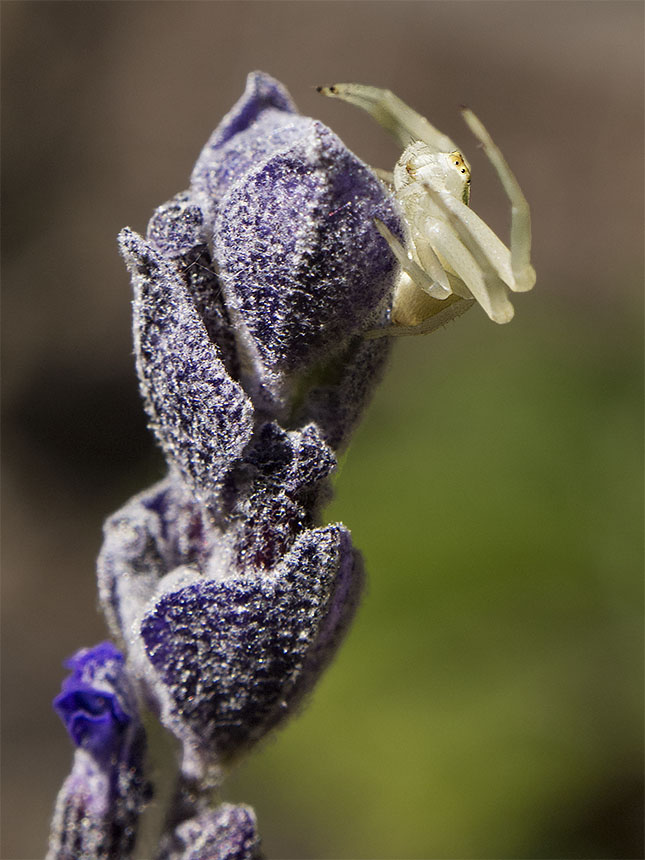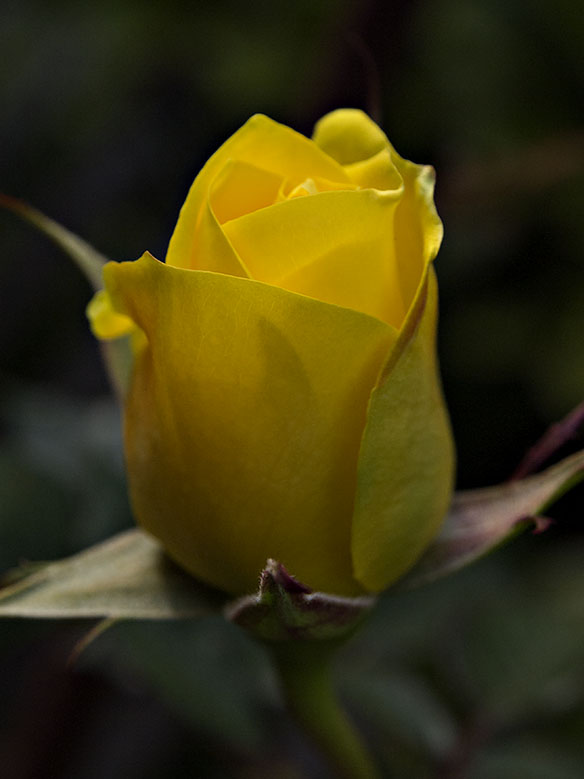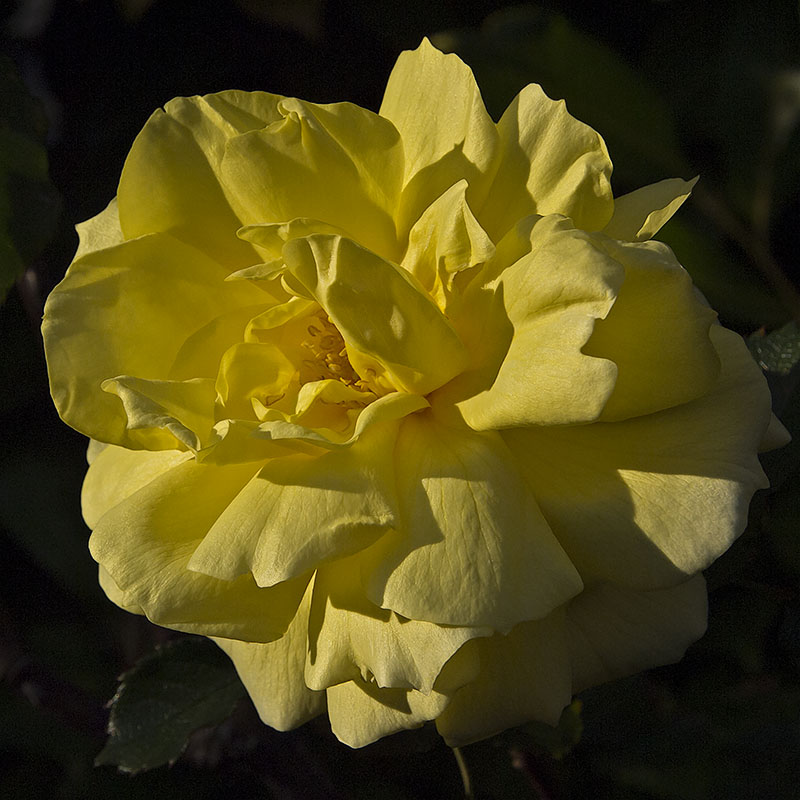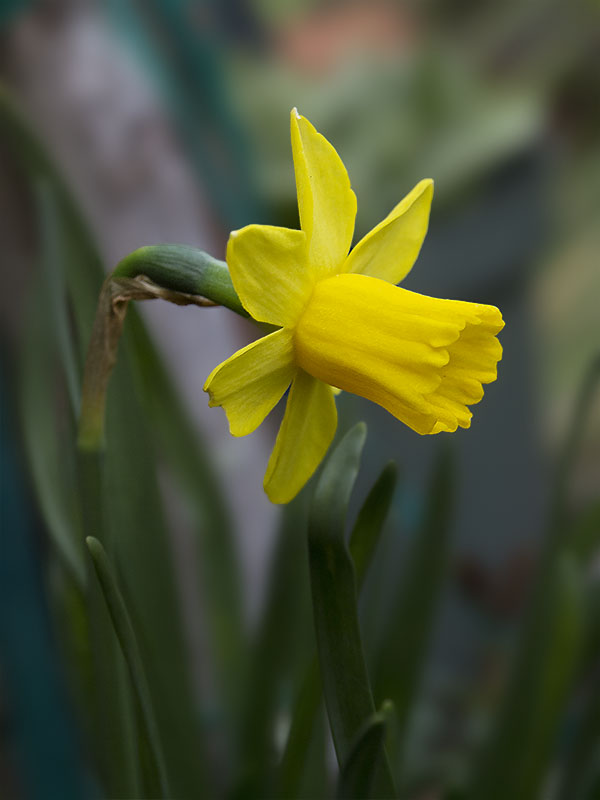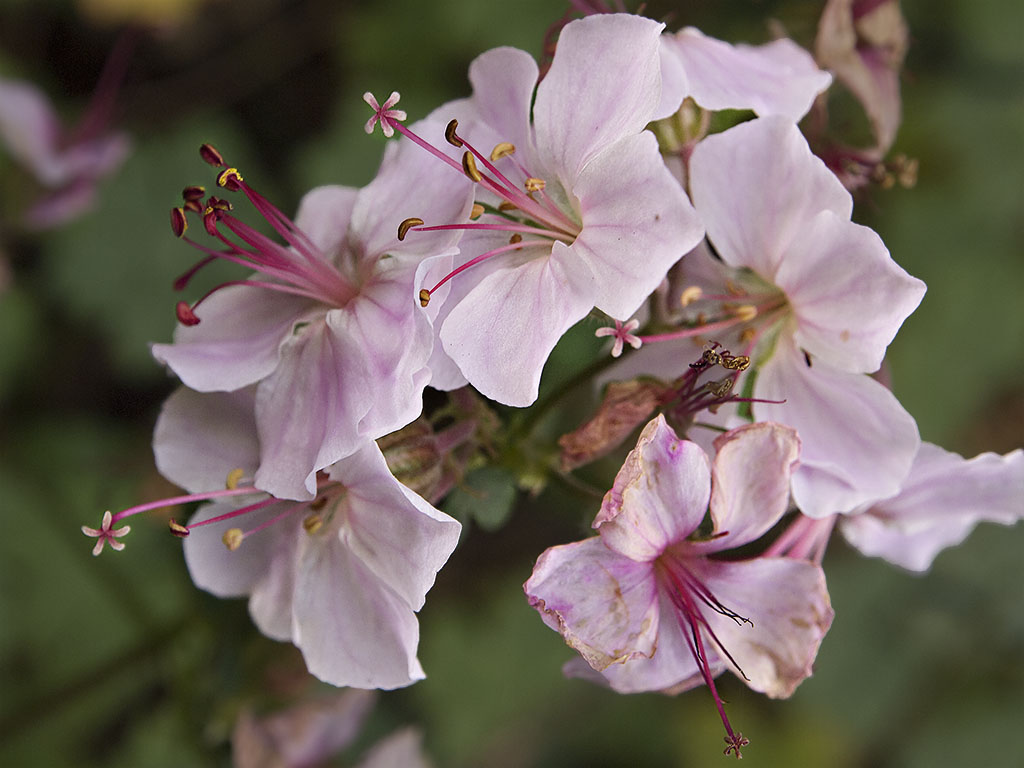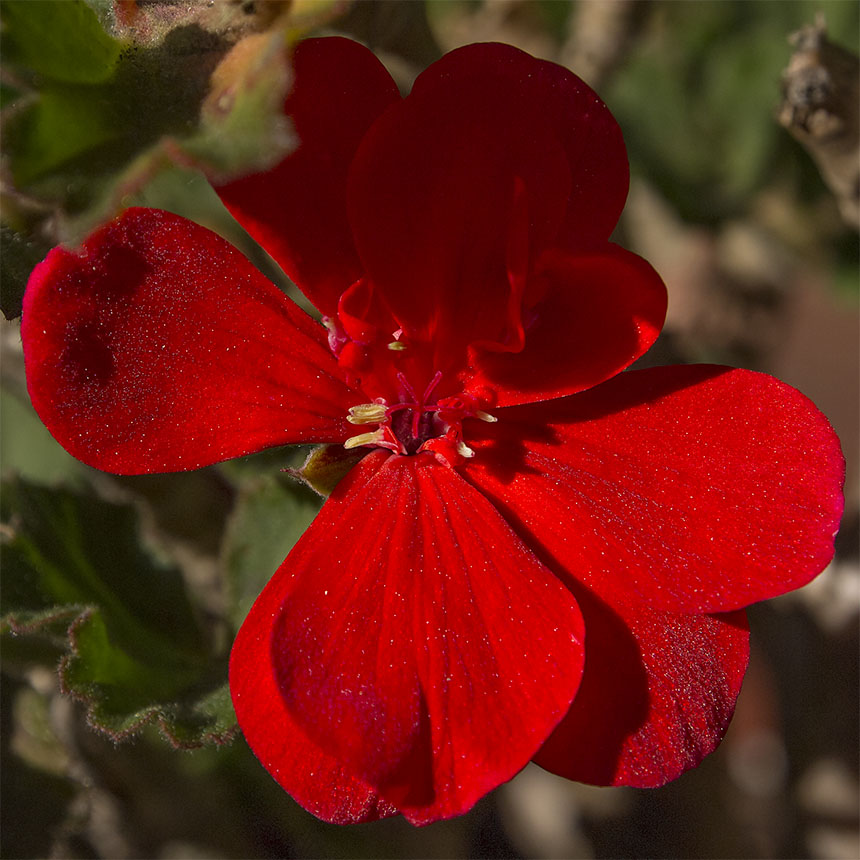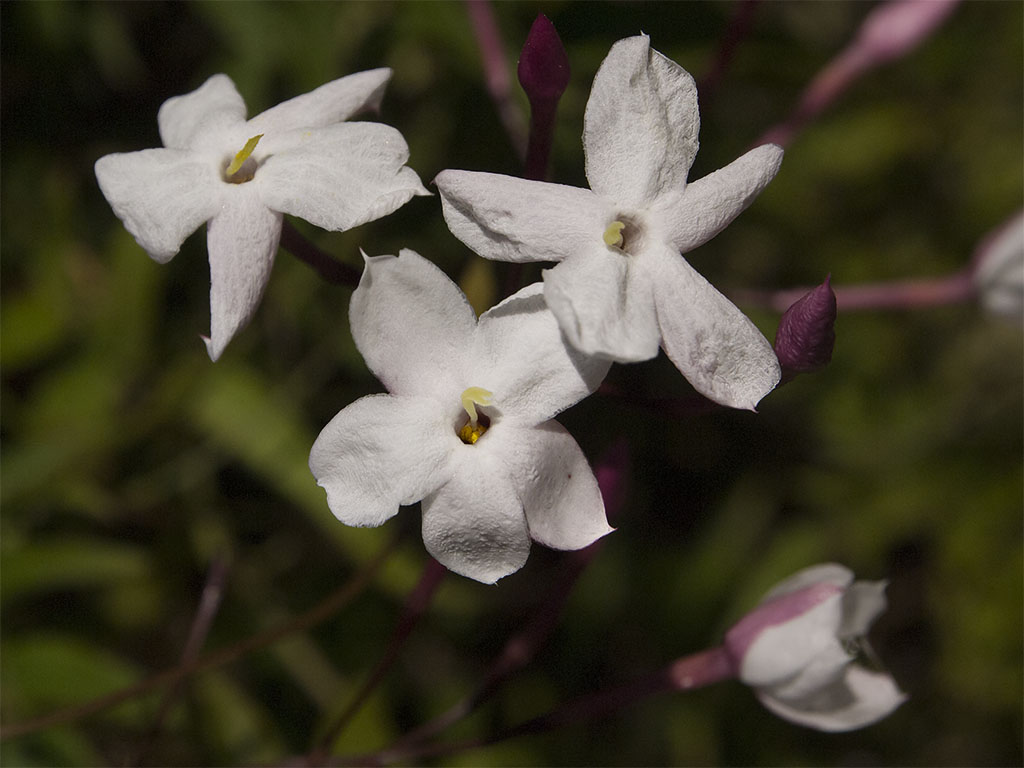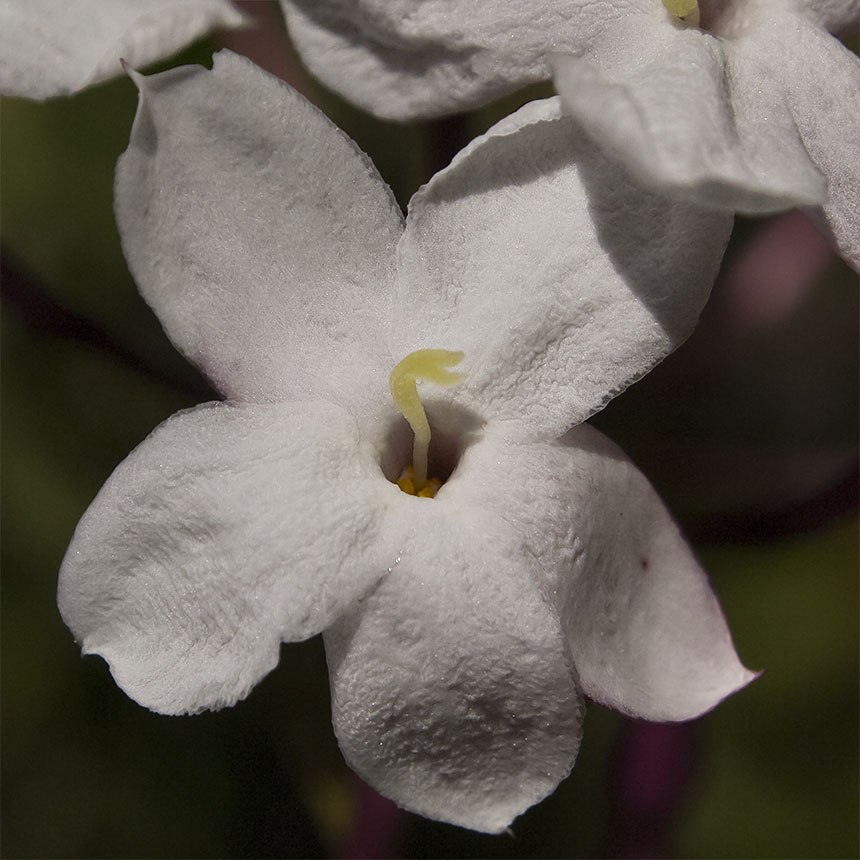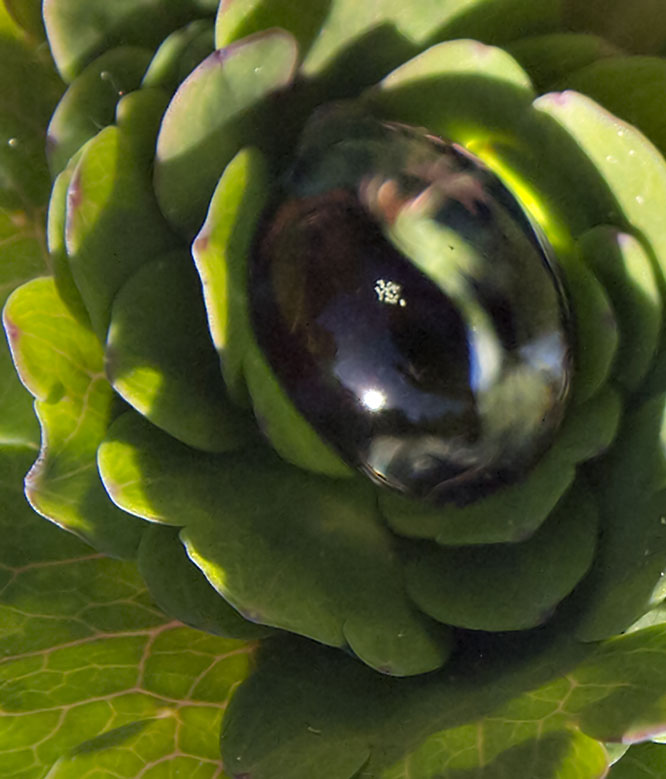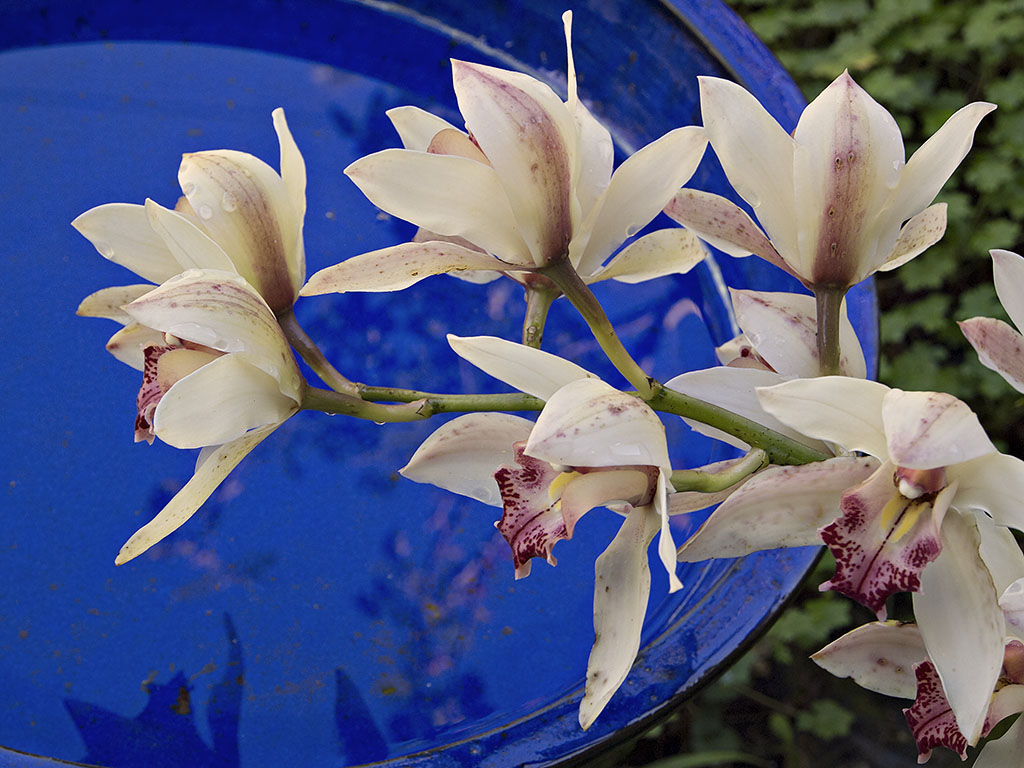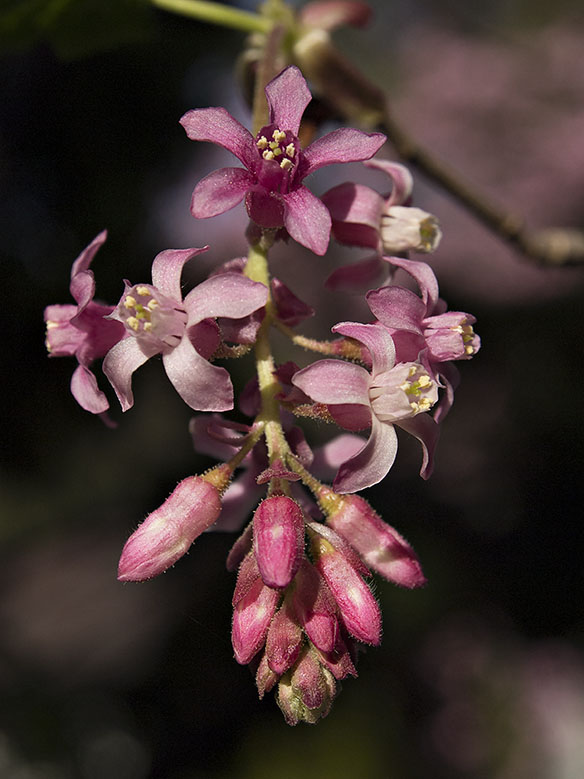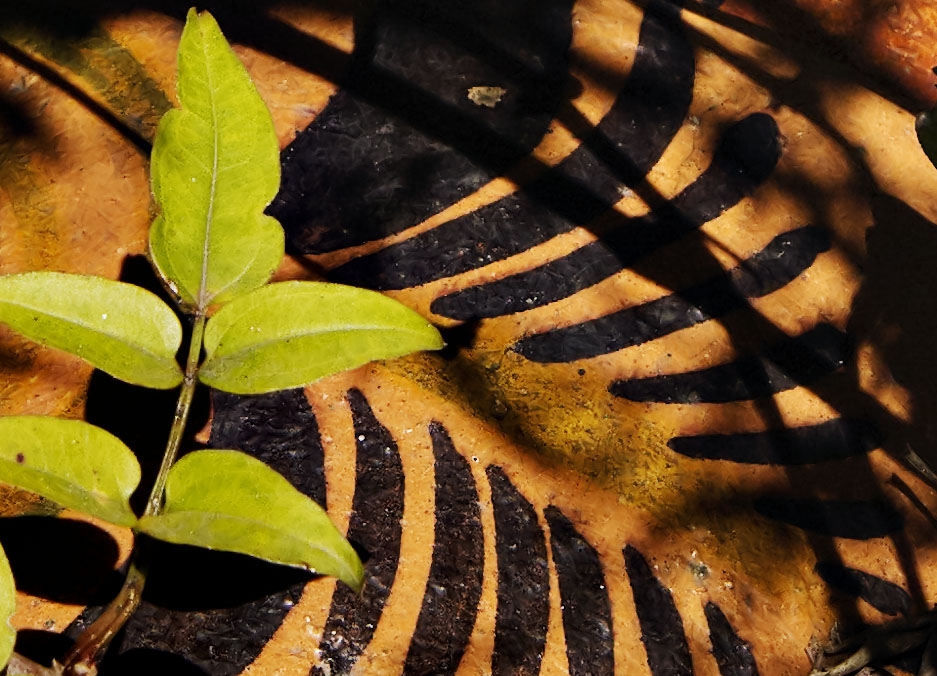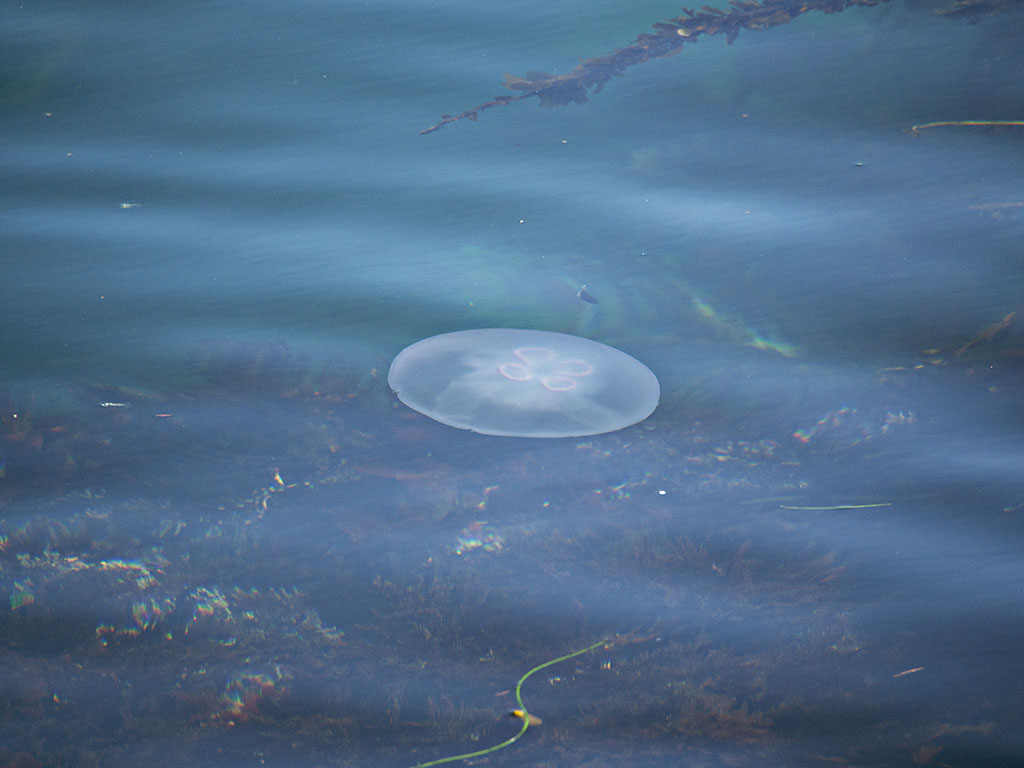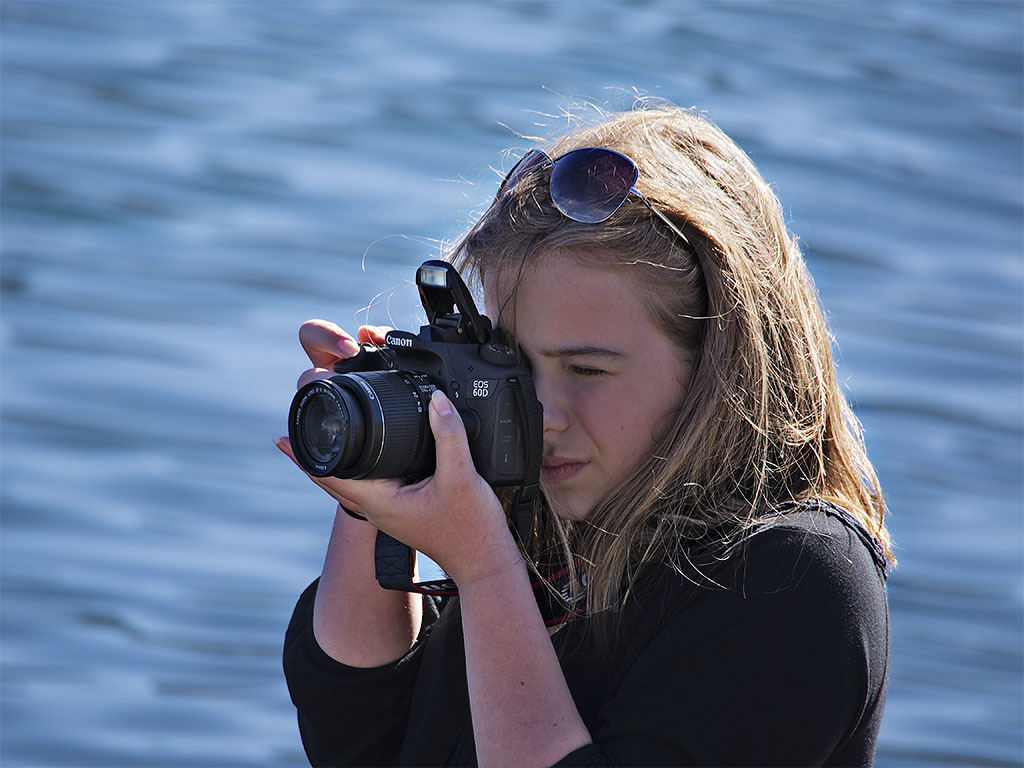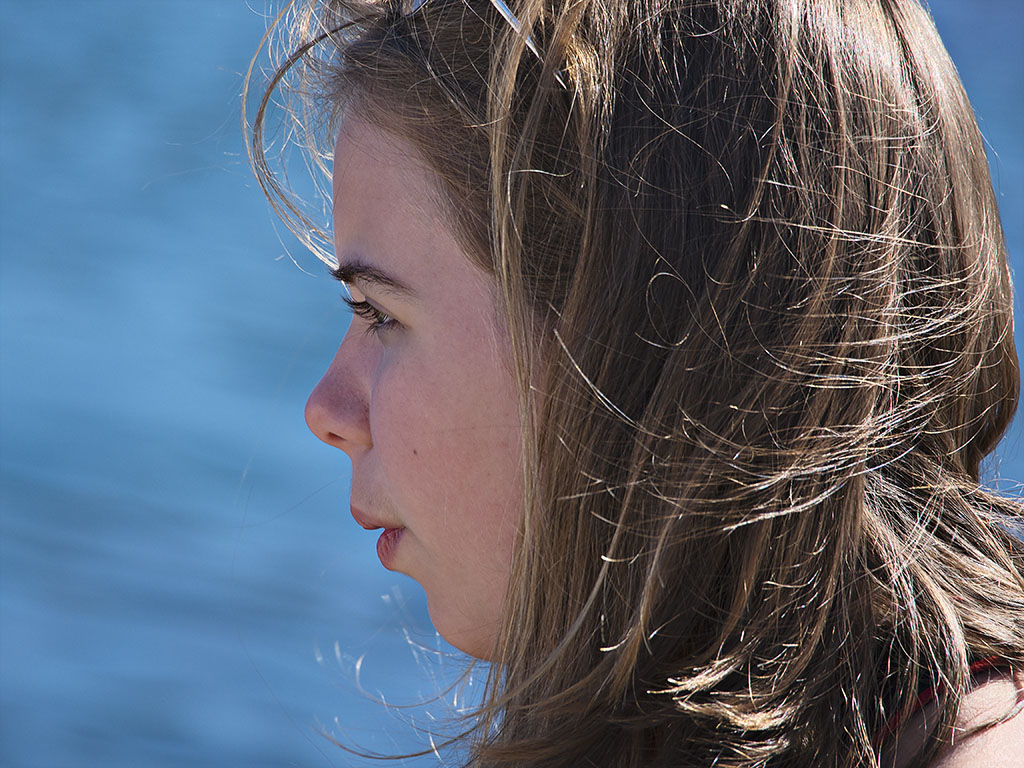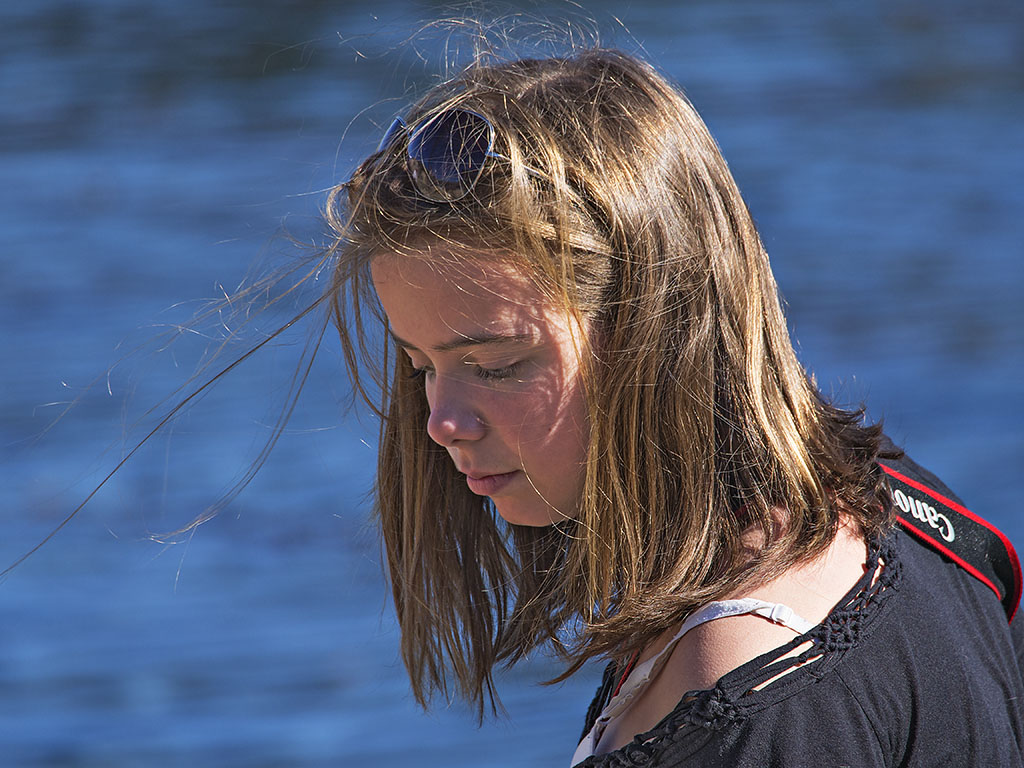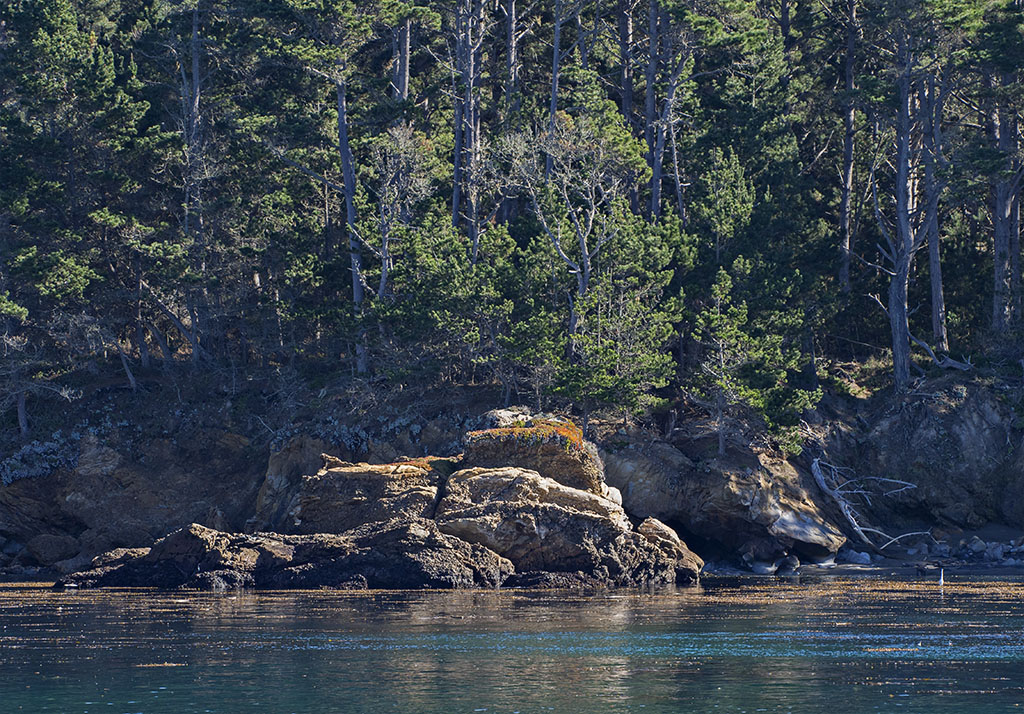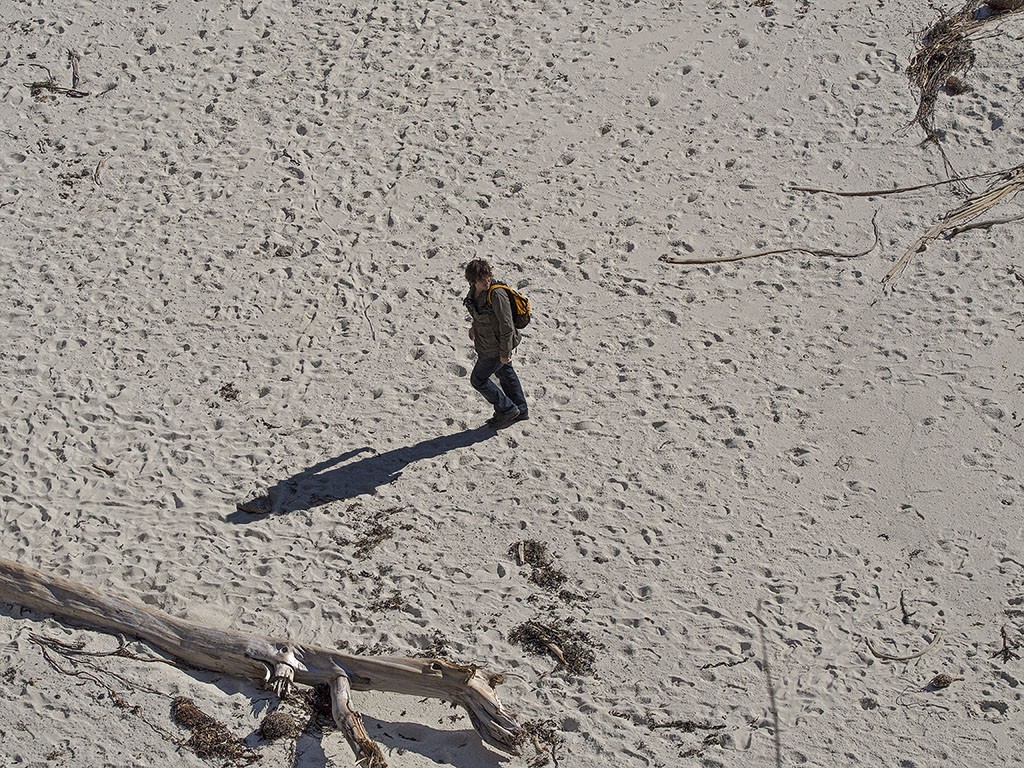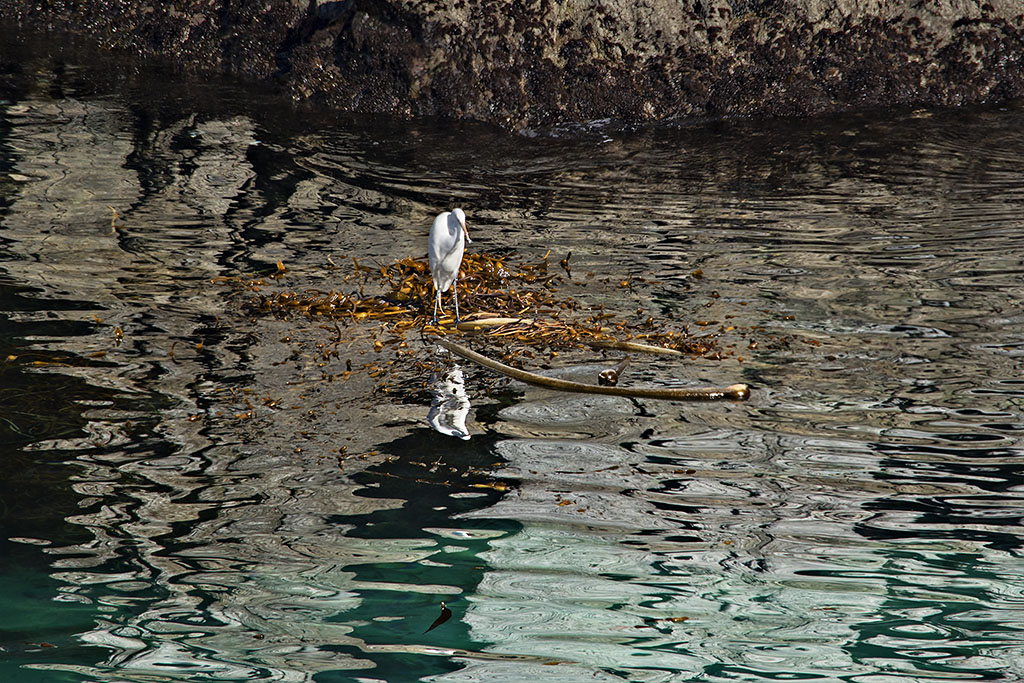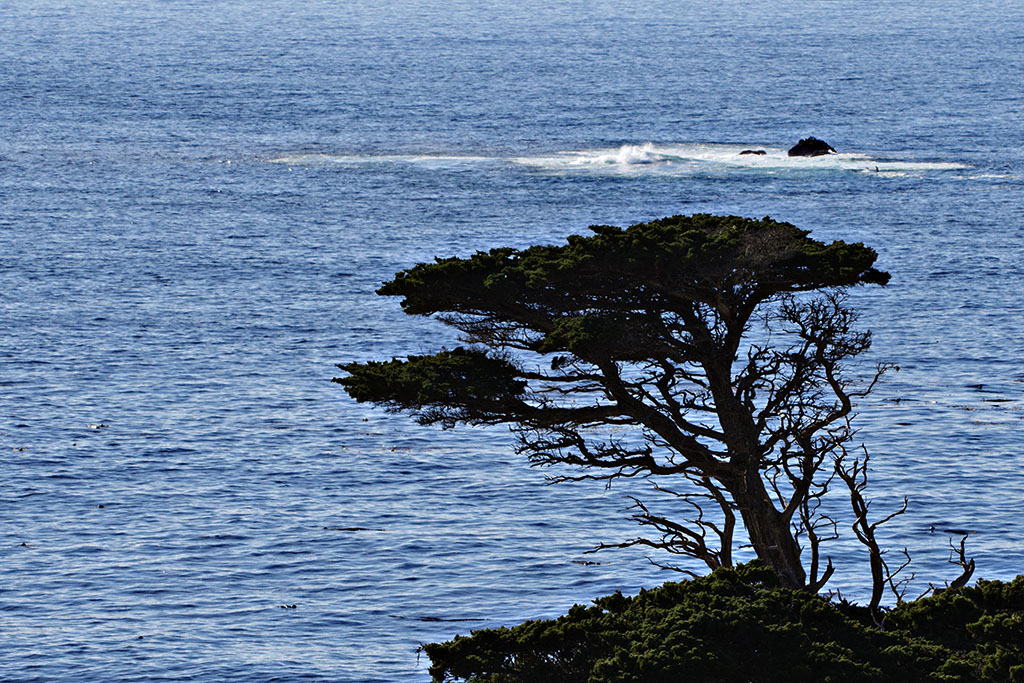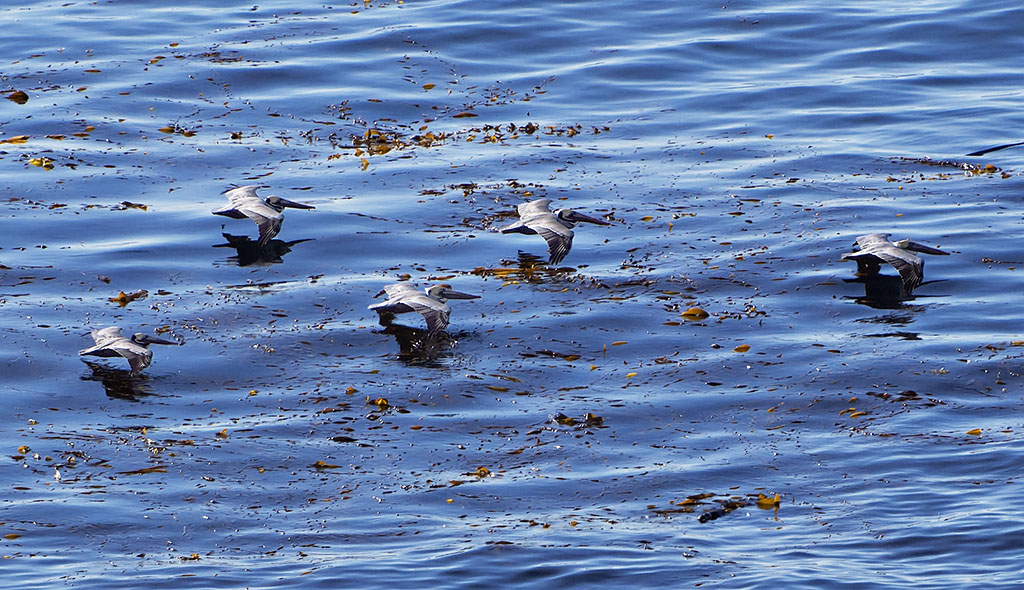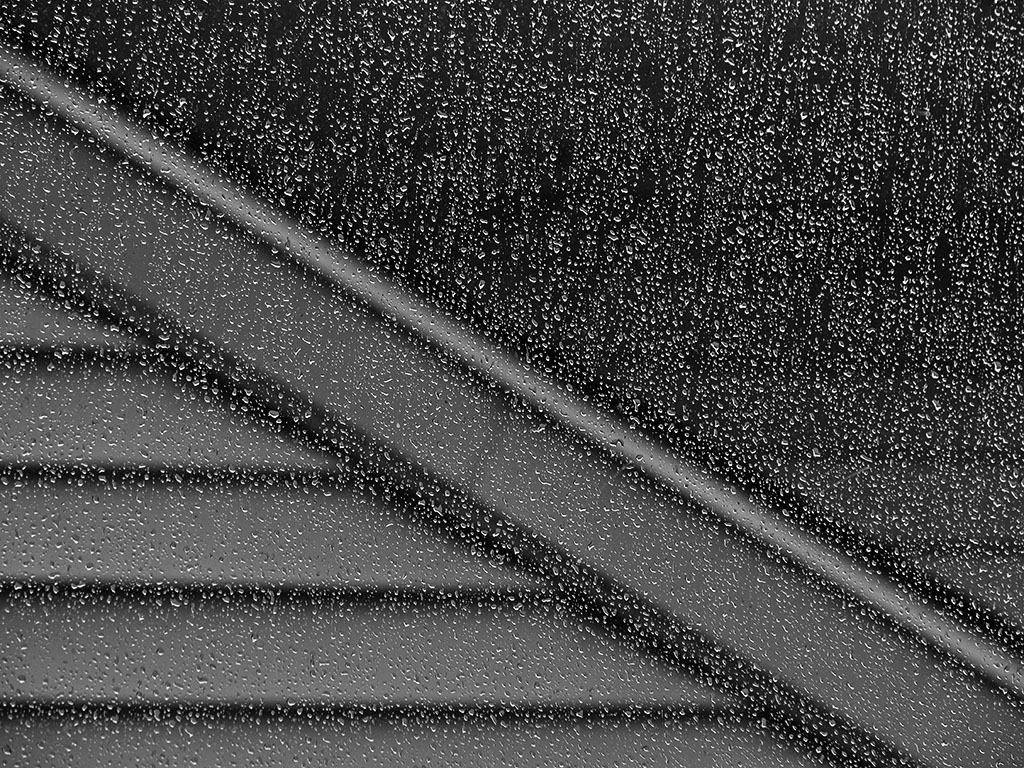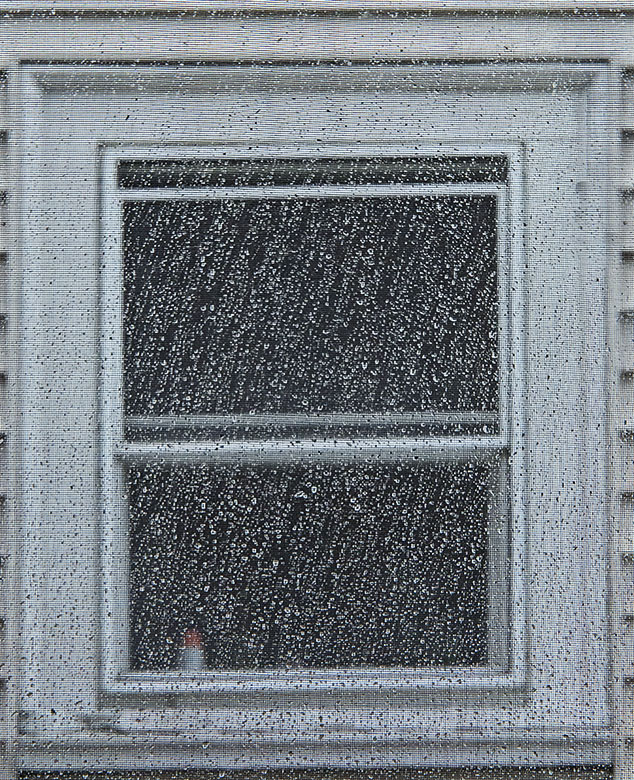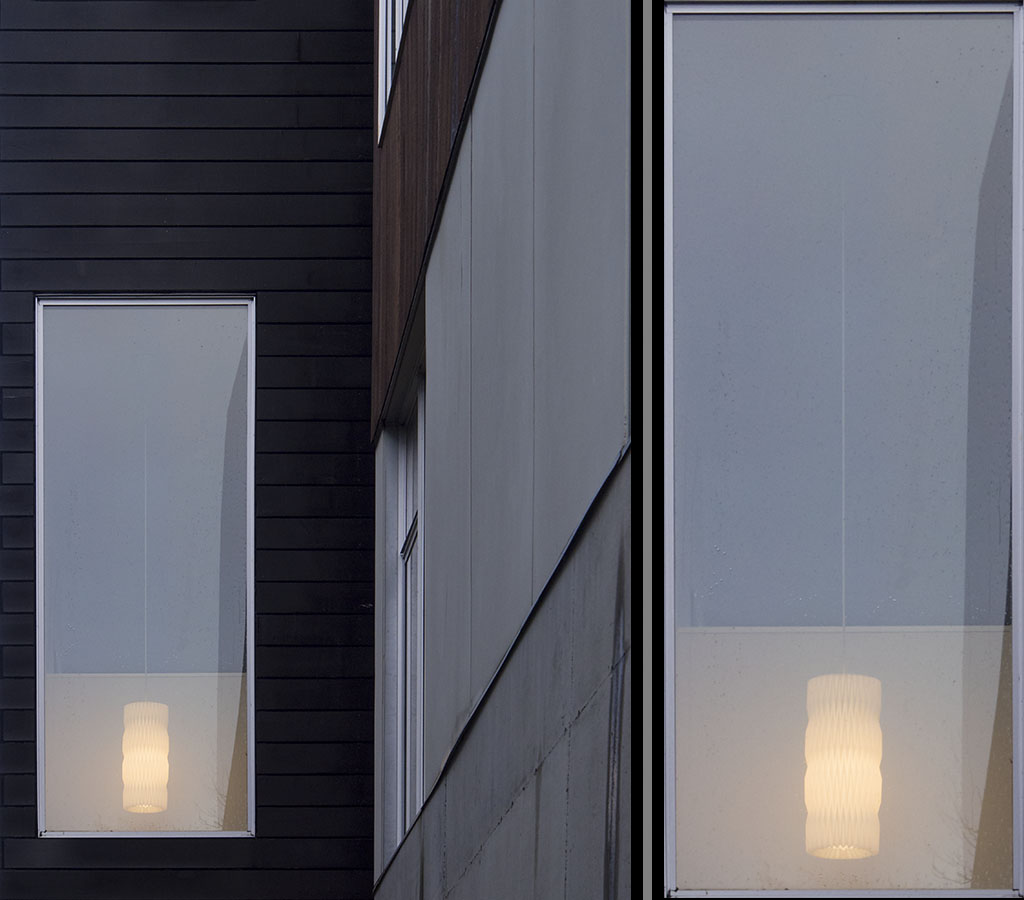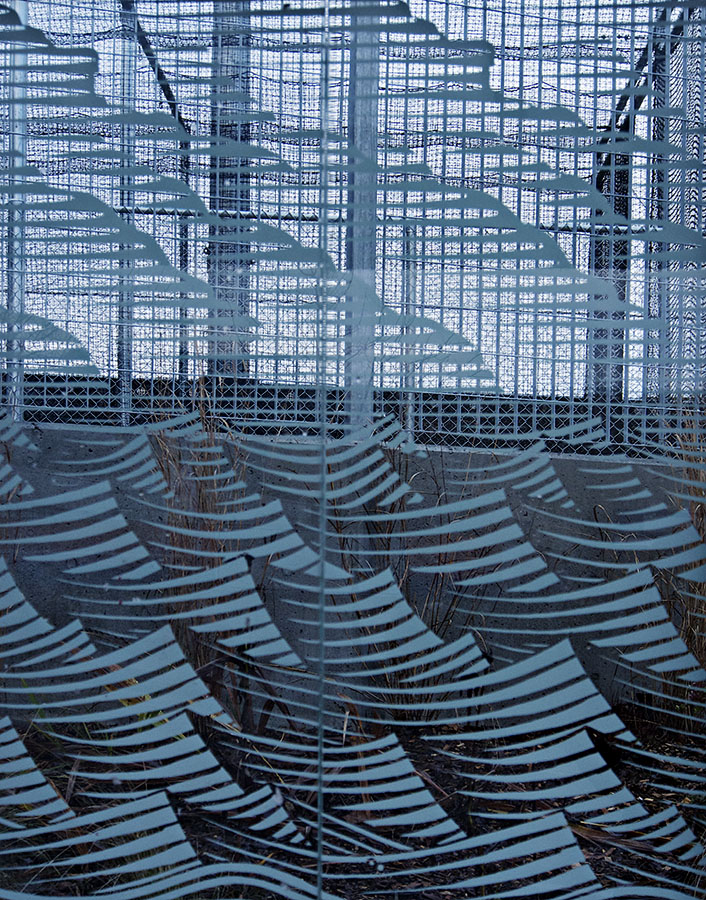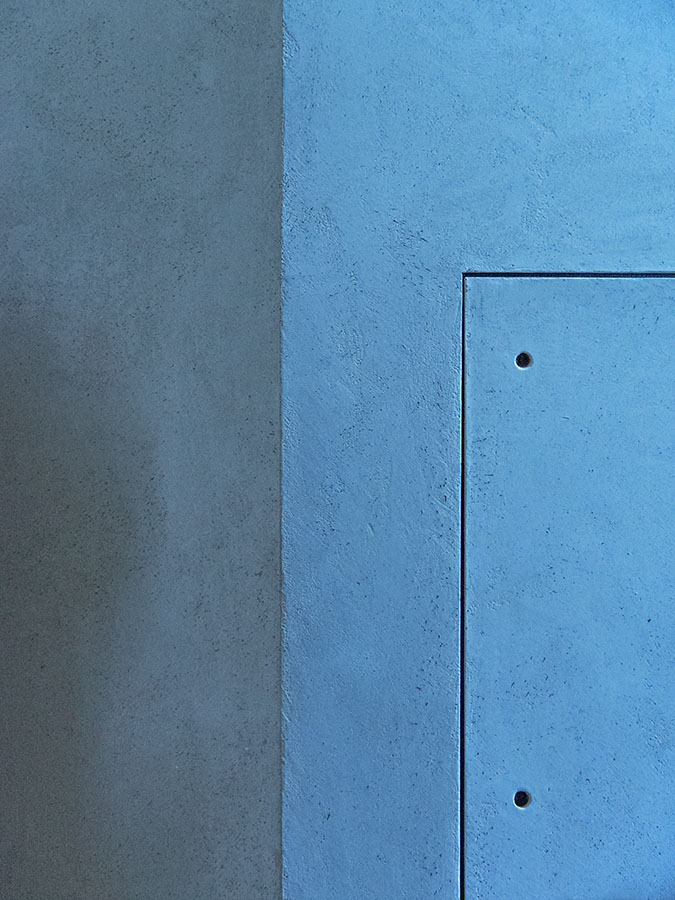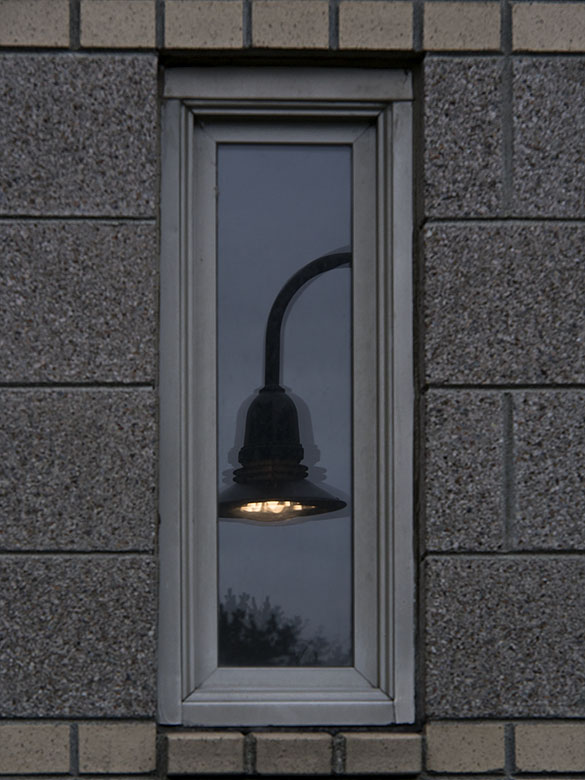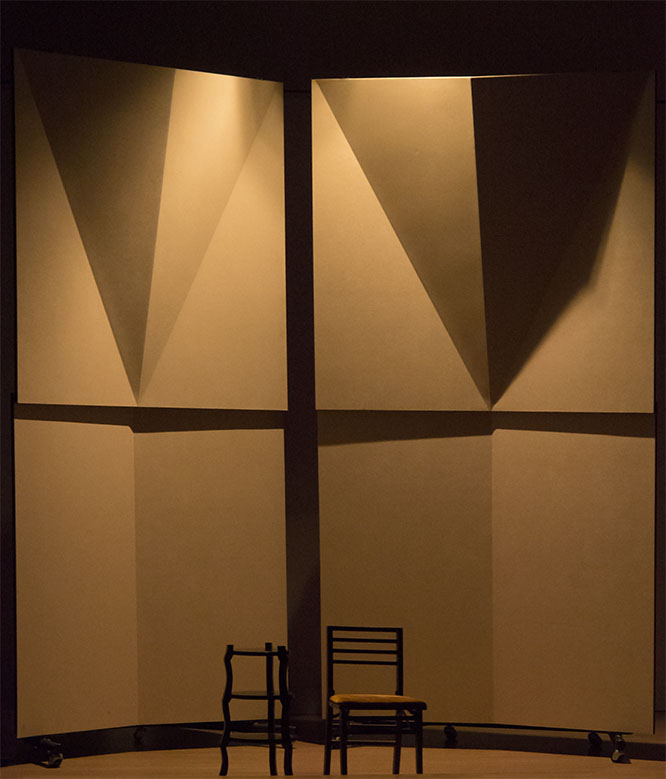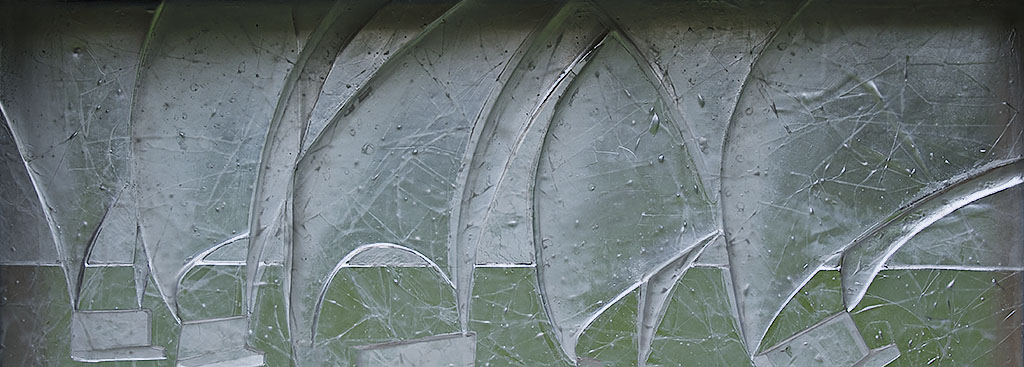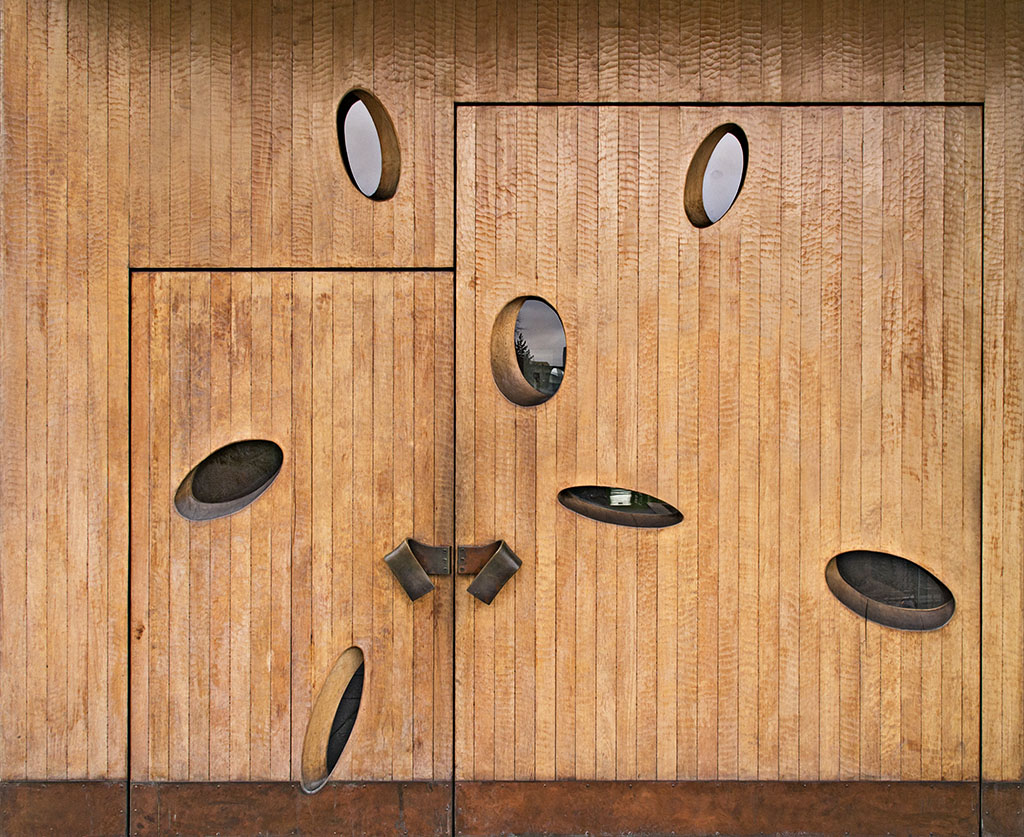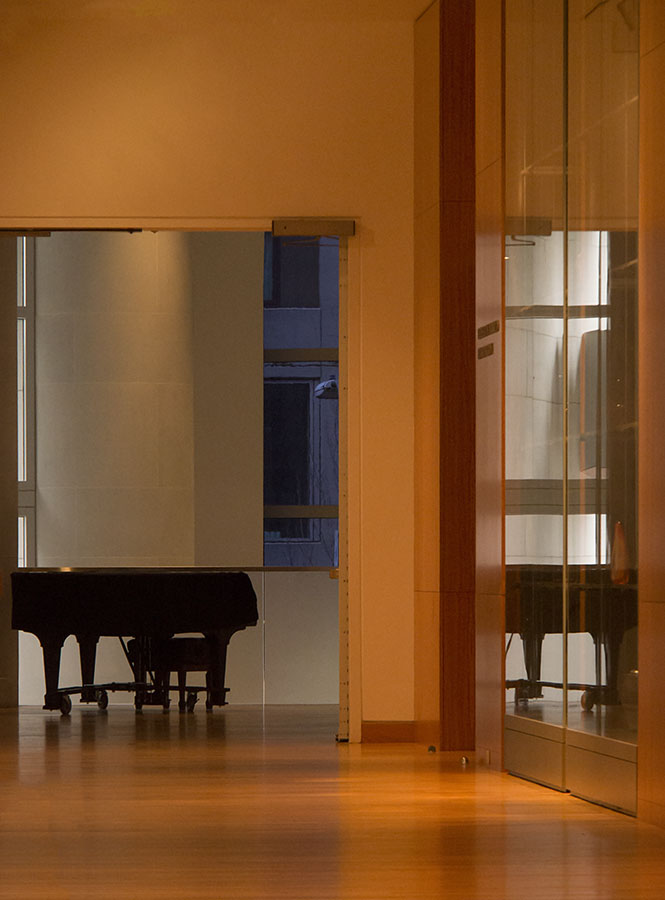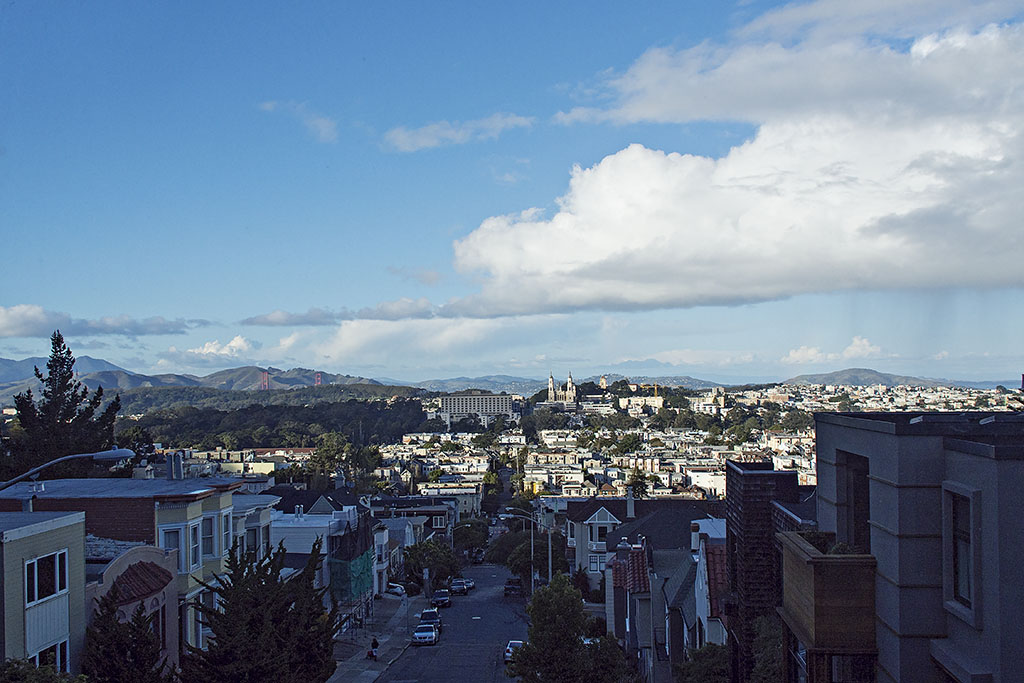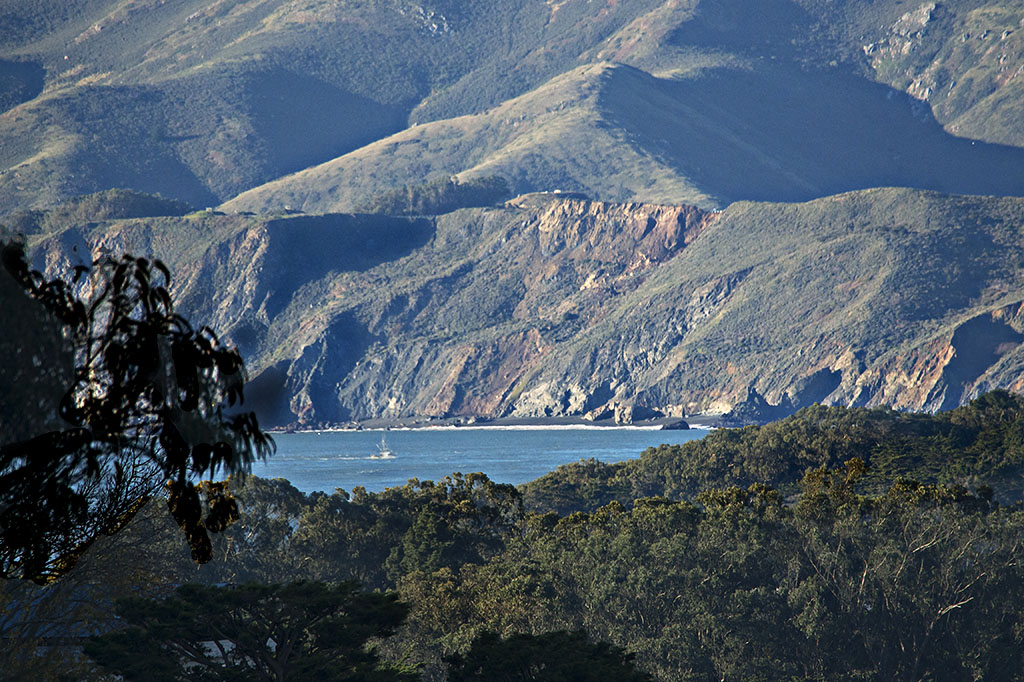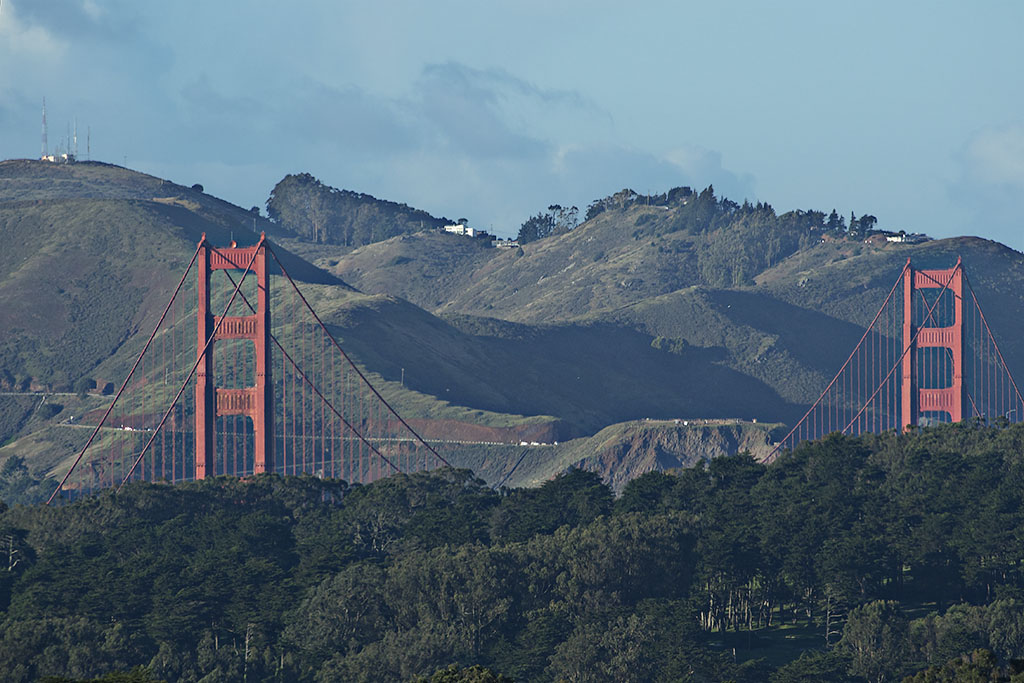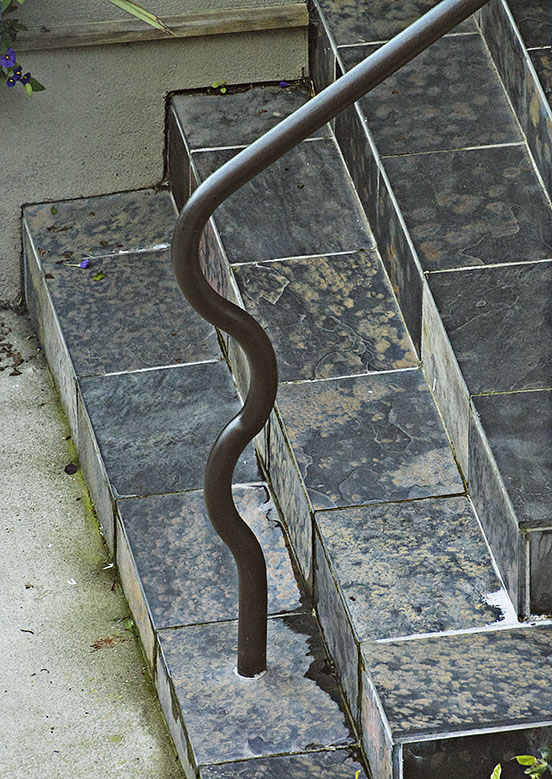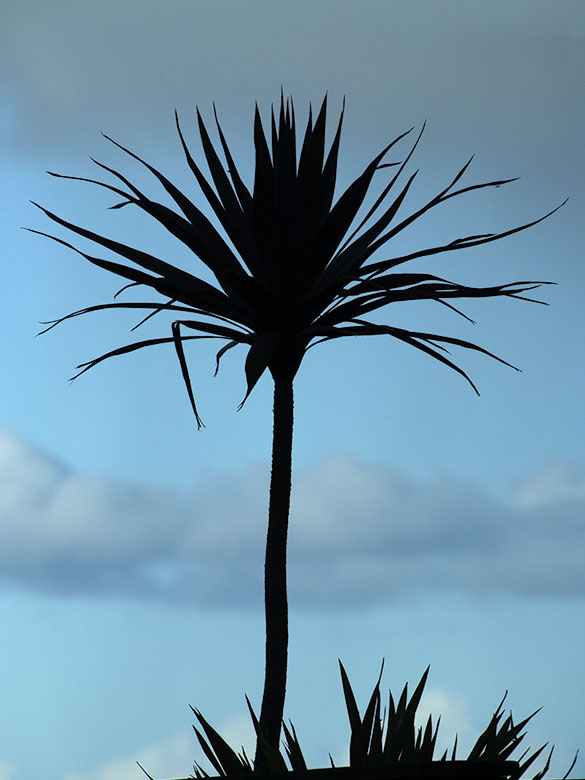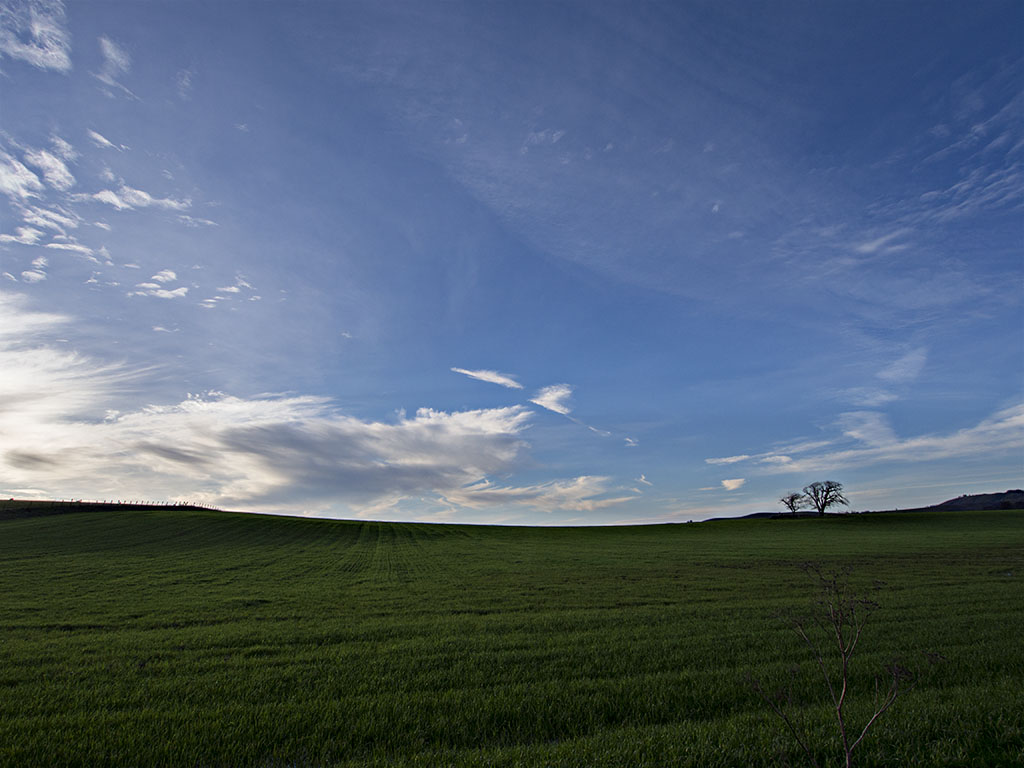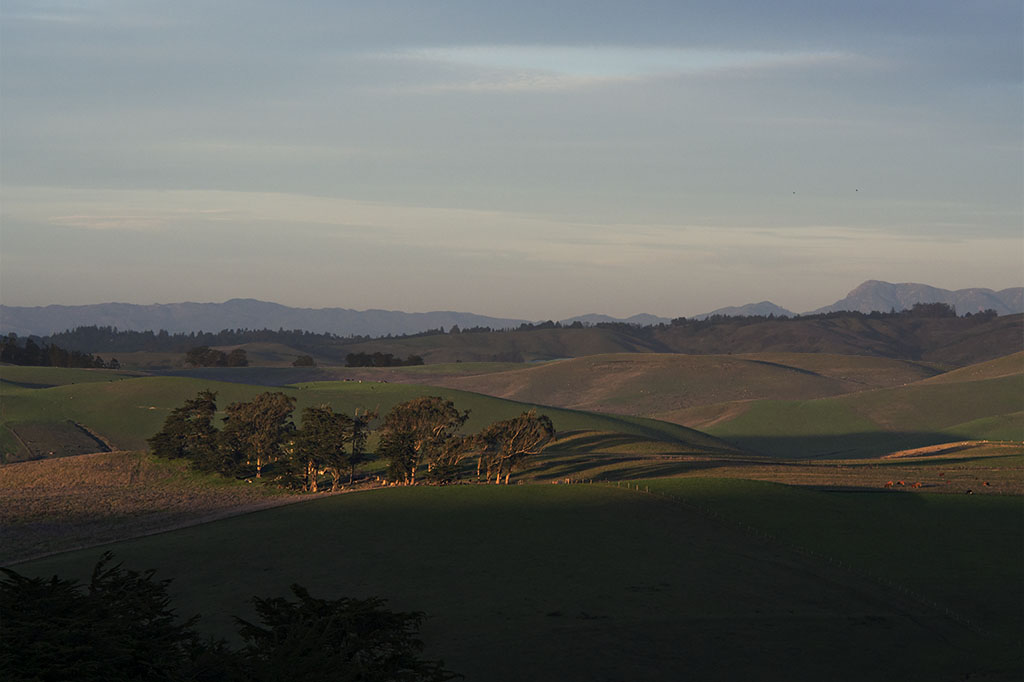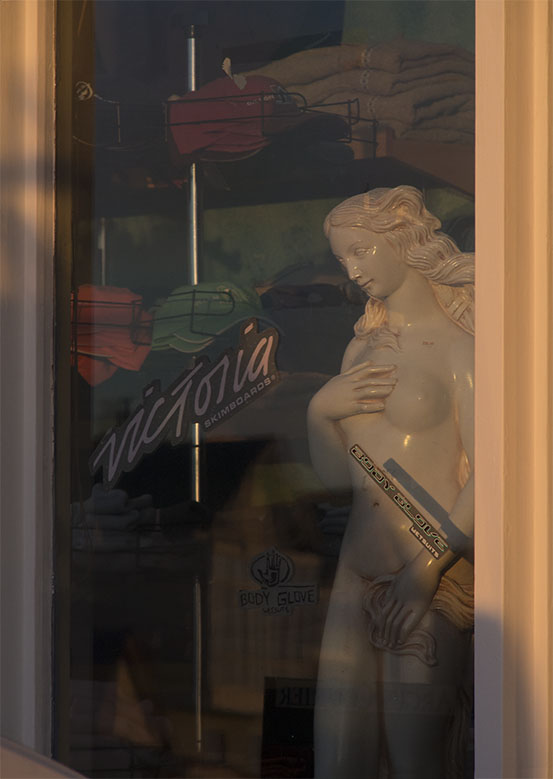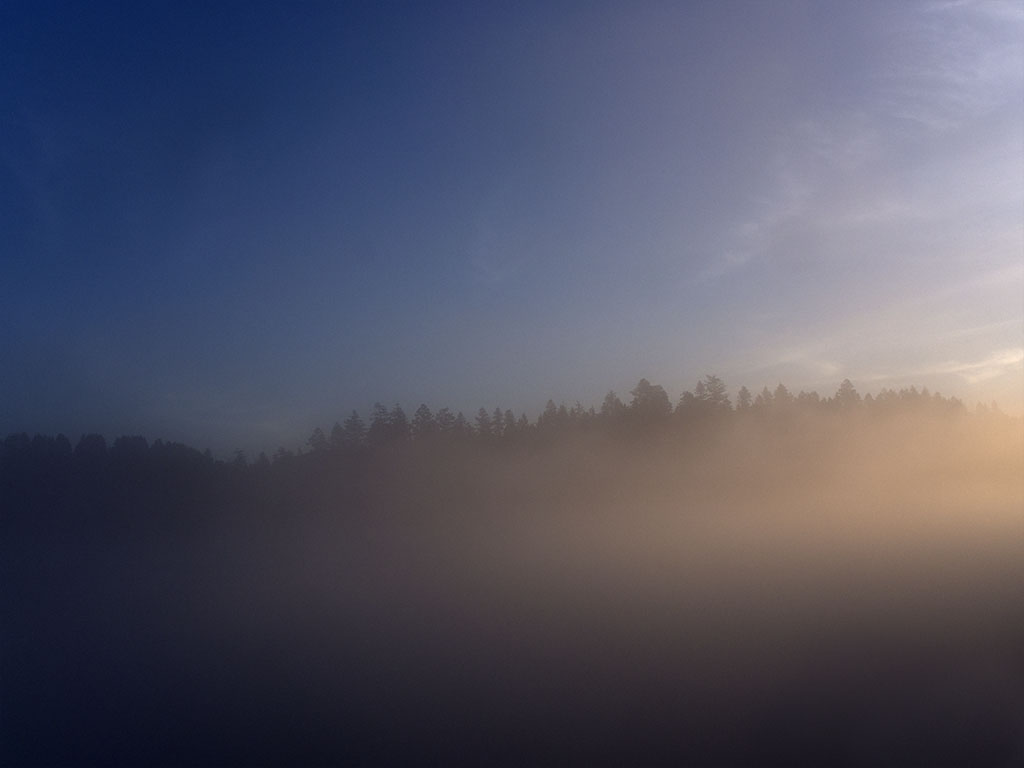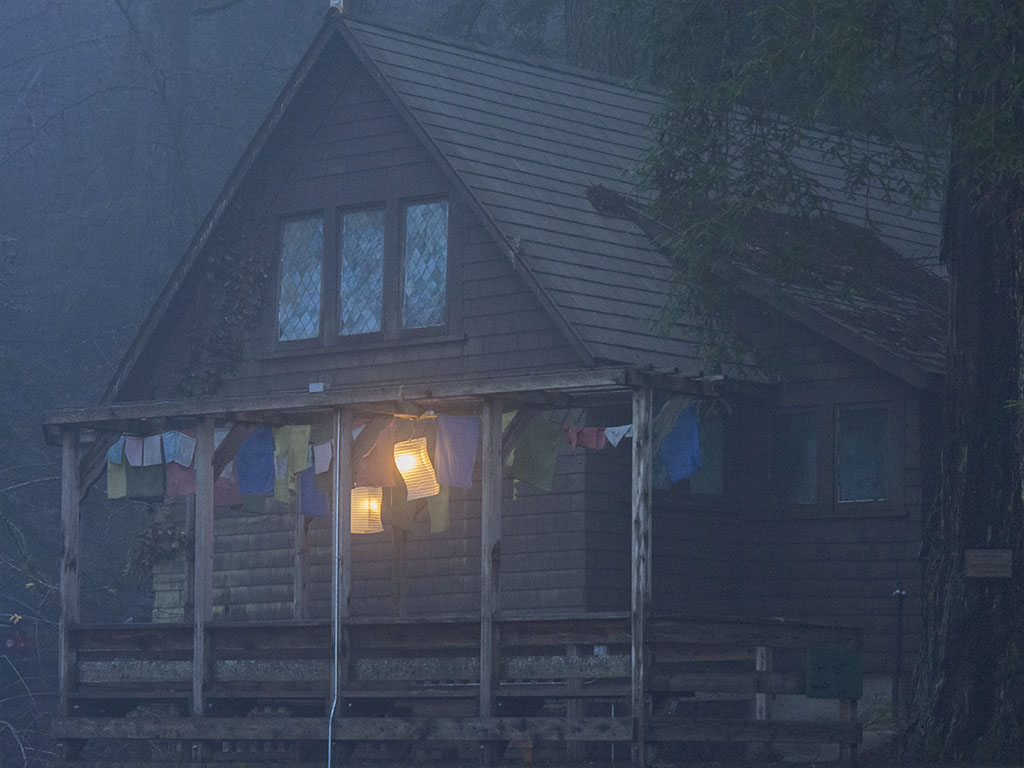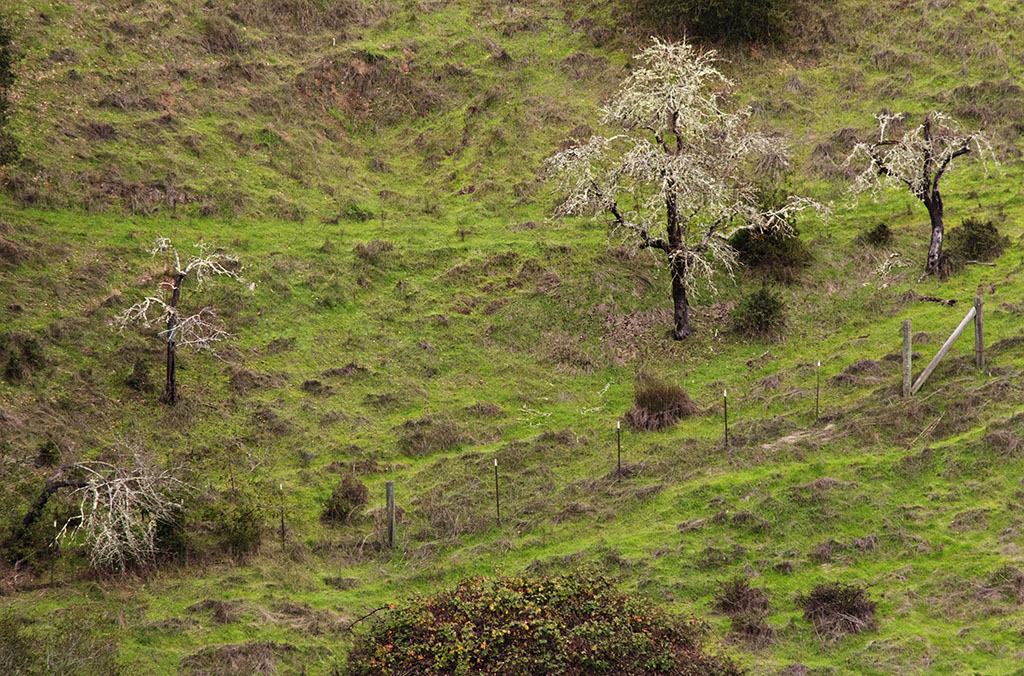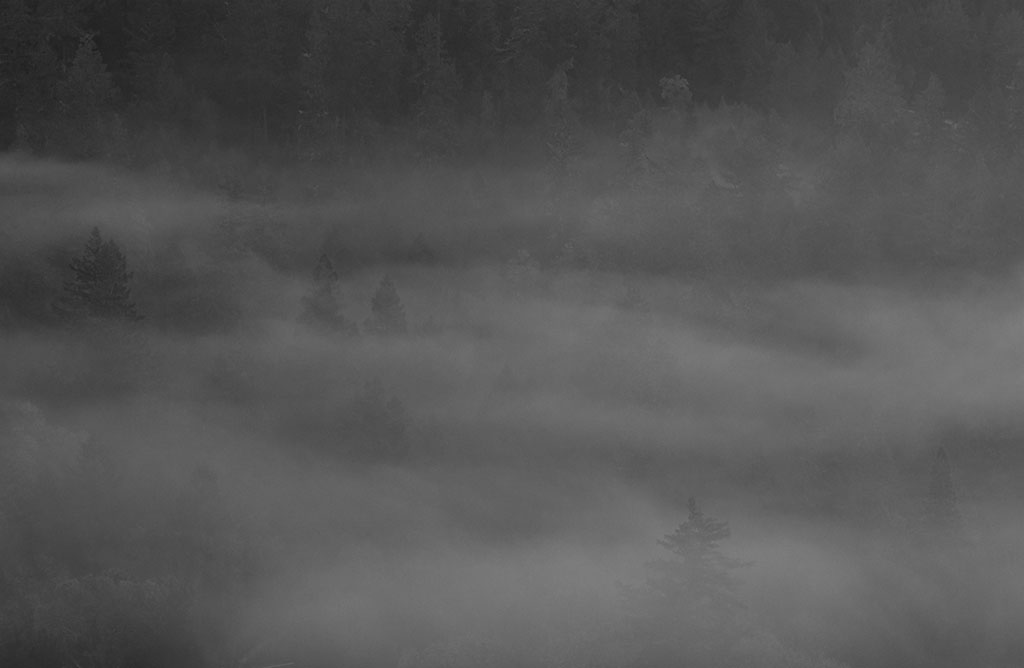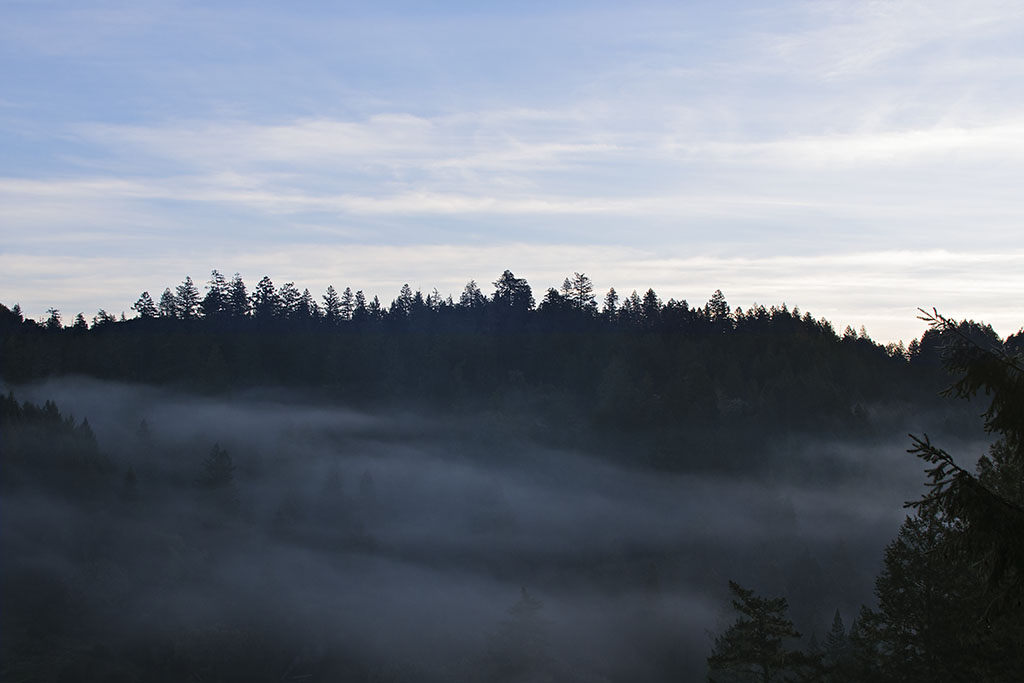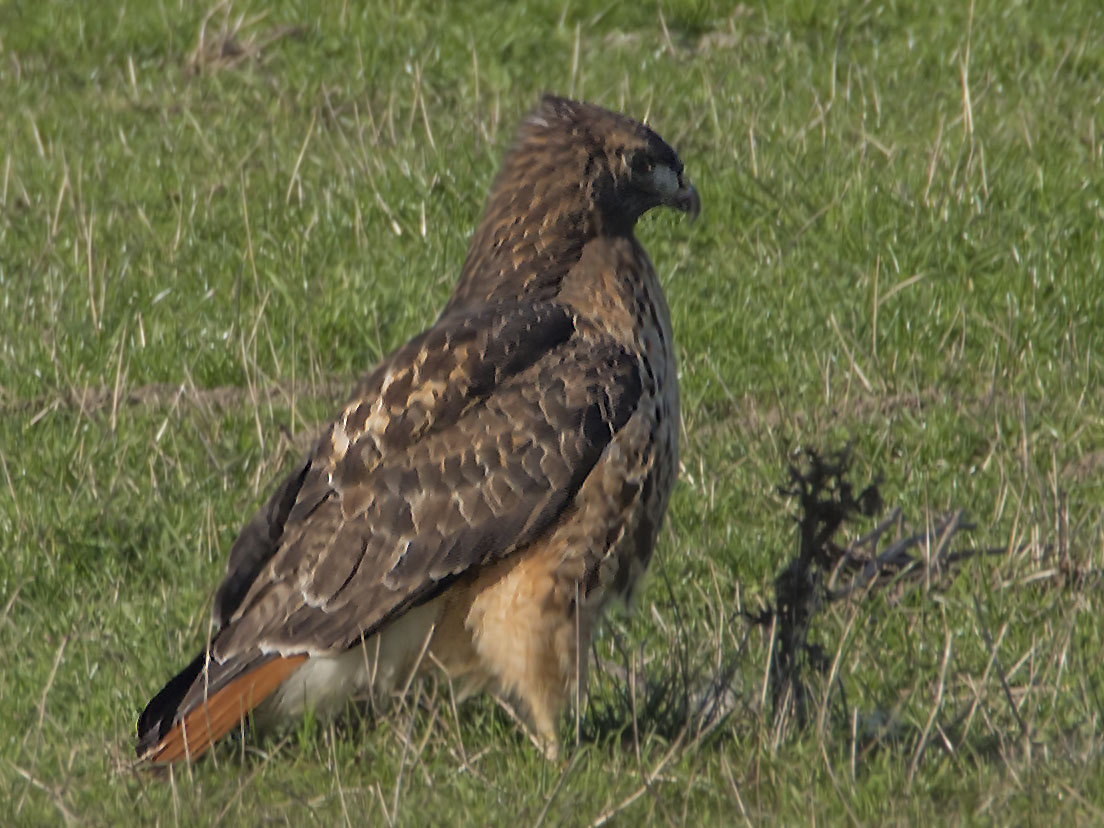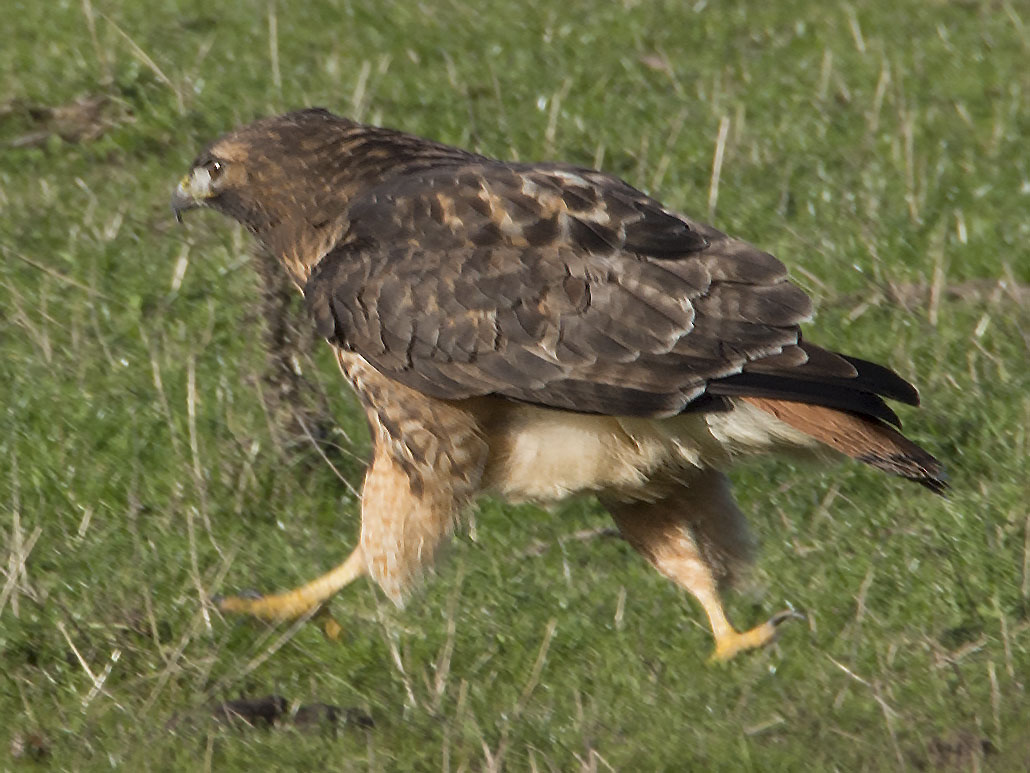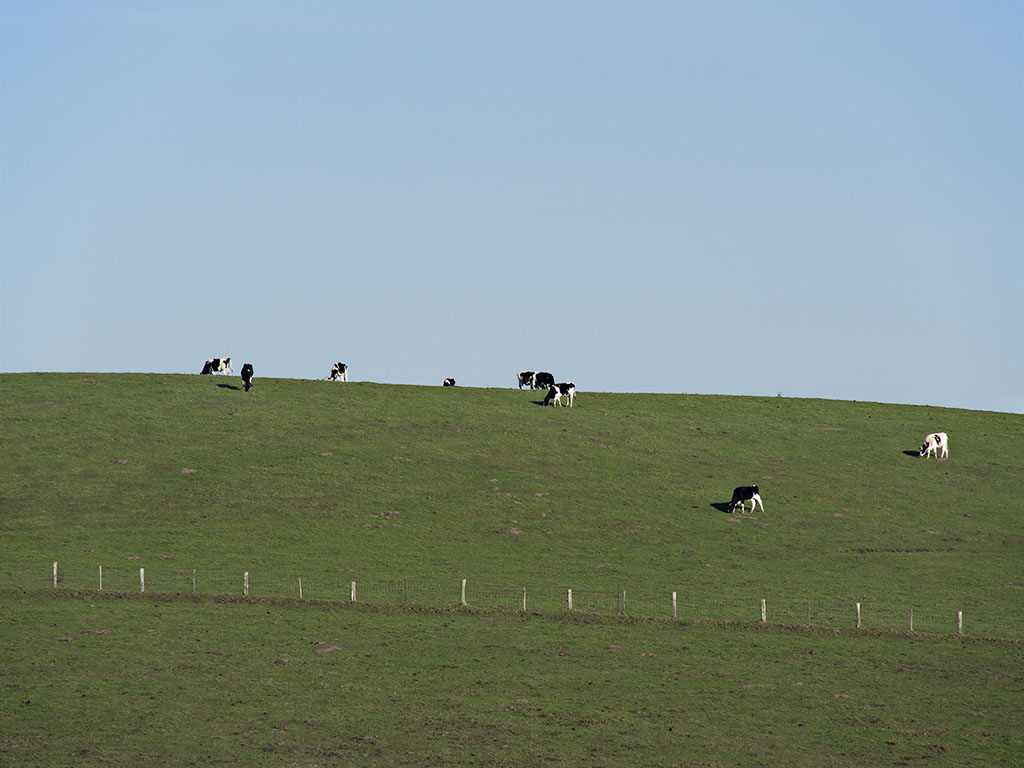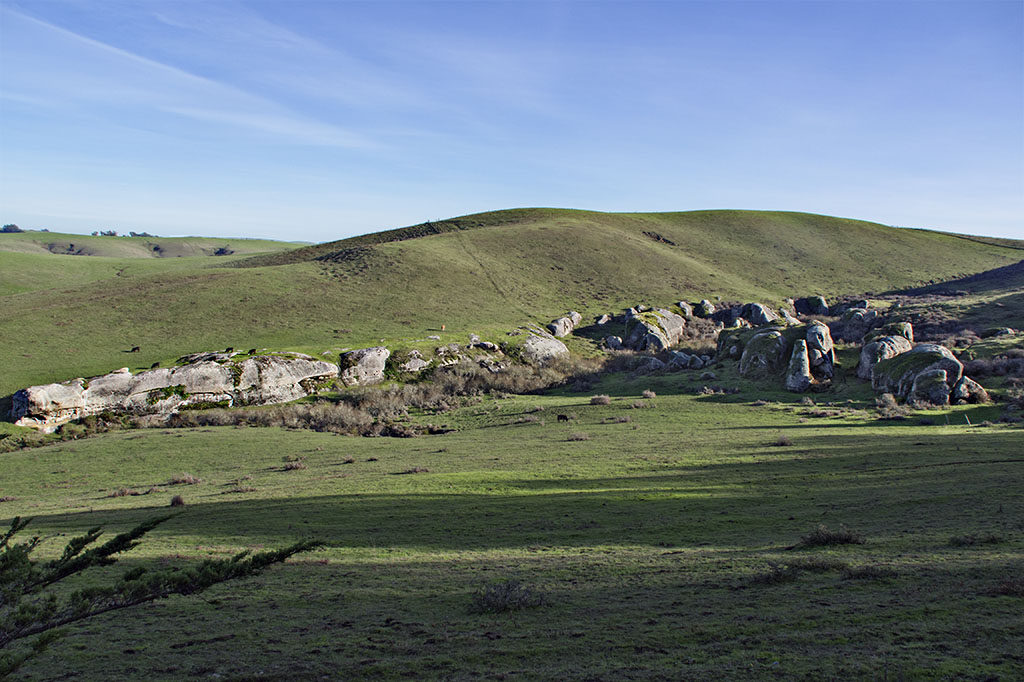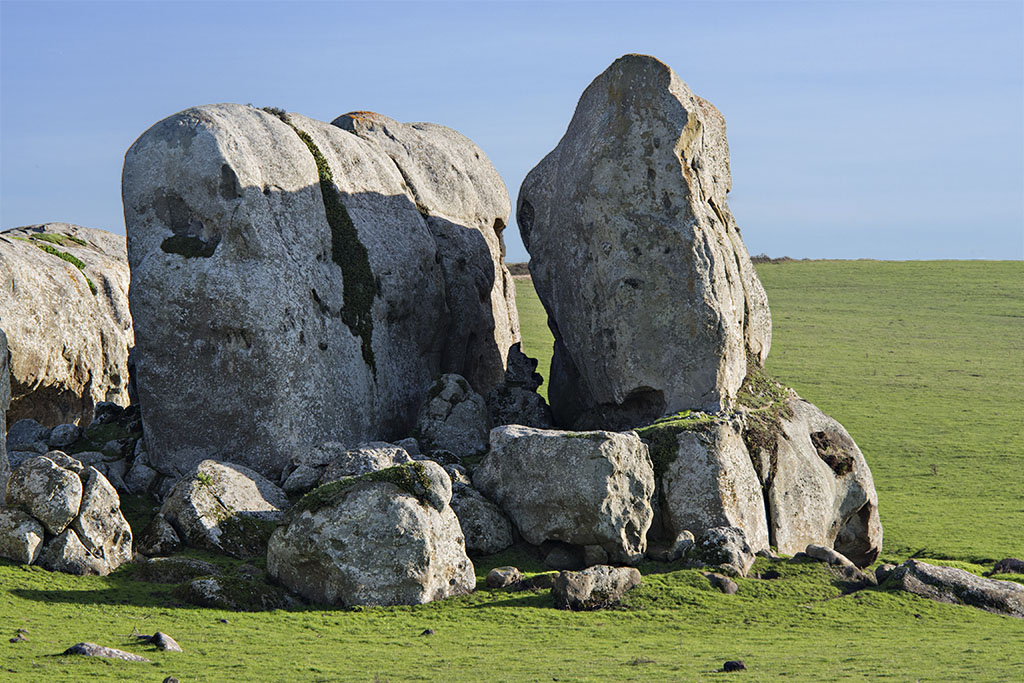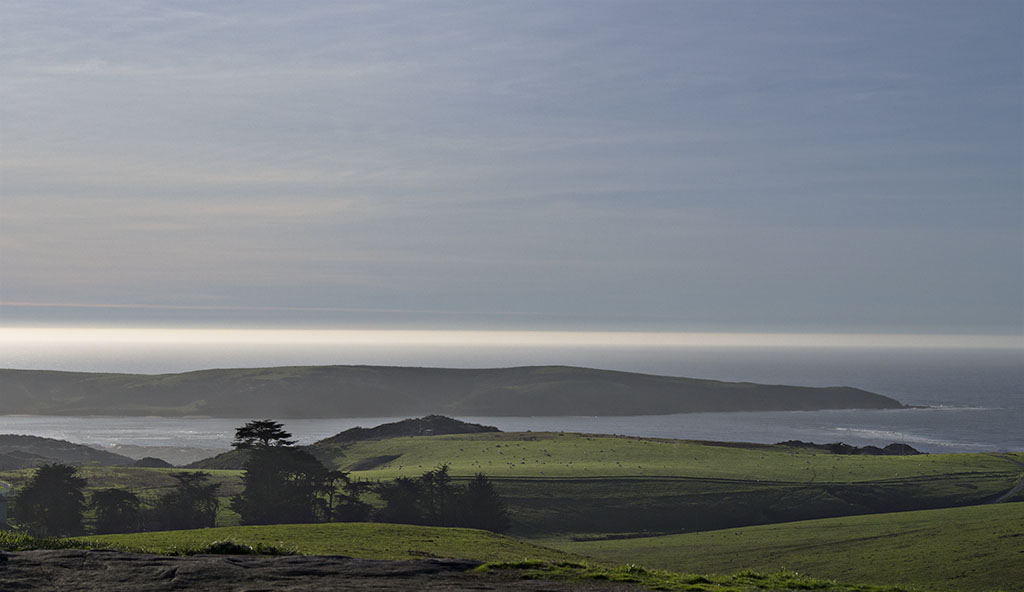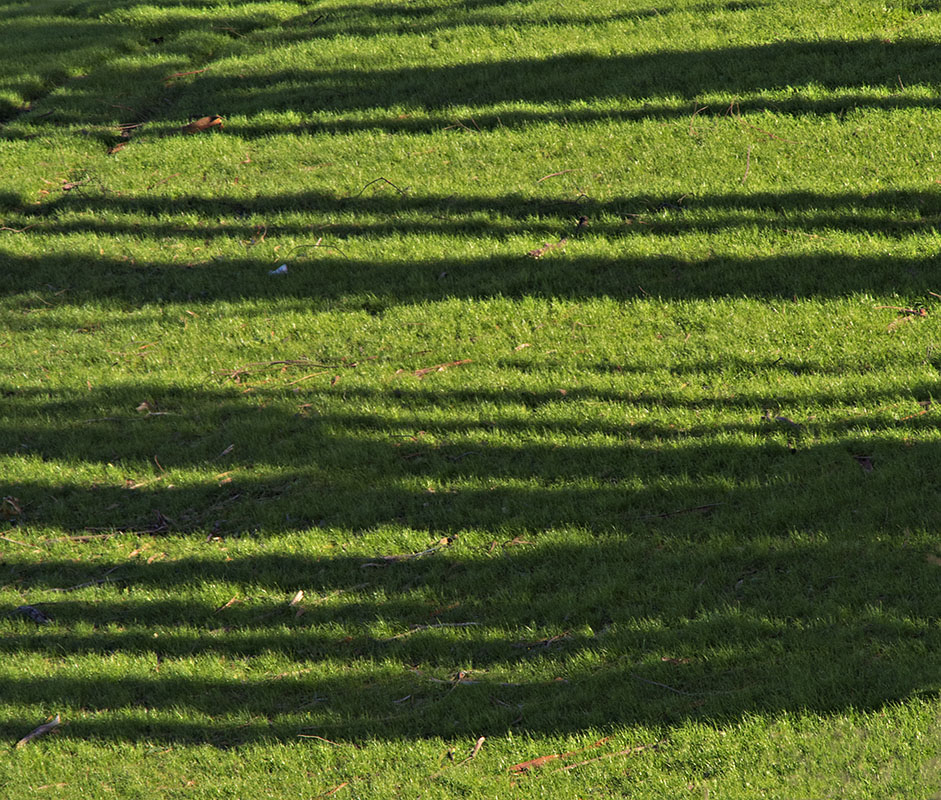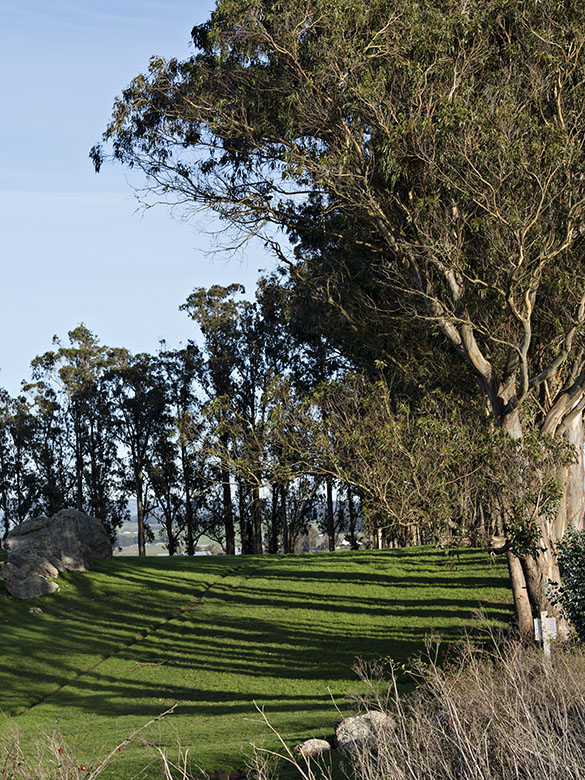Brought to you by the letter S, the number 8 and the color Blue.
Yesterday, March came in like a Lamb.
At my ease in a lounge chair in the garden, book in hand, camera hanging at my side, the subjects came to me.
Wave!
Rolling Hills of Denim
Landed Face First – Held On.
Taken Charge!
Taken Charge – Larger
Spring in Our Garden – February 2013
After a lot of rain early in the winter, we’ve had a long string of mostly sunny days. Many plants and trees have decided that it is time to put on their spring clothing.
First up, waving its flag in celebration of Spring, Spanish Lavender.

Bearded Iris shoot.
The old Bearded Irises have filled a large area with rhizomes. Many shoots, but only a few will blossom. They probably need to be dug up, cut up, and replanted … Sigh.
I don’t know what these are called. I used to have red ones in the back, but they went away. I asked a gardener at Blake Gardens what they are called, but I seem to have not remembered very well, Shazan___? When I told her about my red ones, she gave me some new red ones. Maybe flowers next year.
I just love our Sunsprite roses. As the buds open, the colors are so subtle, and they fill the air with delicious fragarence.
As they mature, they get more complex, brassier, maybe blowsier, and the scent, the scent remains!
This pink climber was old when I bought the house, over thirty years ago. Still blooms like crazy. Its intertwined white neighbor is quiet as yet this year.
We’ve had no big daffys for a few years. This miniature is just as cheery.
These true Geraniums, as usual, have been blooming lightly all winter.
And the first of many Pelargonia, (false, or scented, geraniums) opened a flower.
Like the Geraniums, this Fuschia carries a few beautiful, quiet dancers all winter.
The Star Jasmine is covered with its small, intense, dark red buds, one seen to the right of these blossoms.
They open very quickly, so we mostly see only buds and open flowers. I caught this very prettily in between.
They grow in clusters, so I tend to think of them collectively, but here is a close-up of one.
The Columbines are growing with such vigour that you can almost see it. No buds as yet, but this one caught some water droplets.
Is it looking back at us?
Our piece of Mom’s old orchid has started blooming.
Close-up
I just remounted my pinhole ‘lens’ from old to new camera mount, so I had to try it out. A very ethereal version of orchids.
If that left you feeling a bit foggy, here’s the same view with a ‘real’ lens. Careful! Don’t cut your eyes.
Our only flowering tree in the front is a lovely, delicate, native Flowering Currant.
Mattie’s yard, visible from our garden across the street, makes up for that with prolifically blooming Cherry tree,
And Magnolia
There are also some artifacts in our garden. One Household Goddess hangs out in a front window, so She can oversee the front garden, too.
A stature of Ganesh has been in the garden for years. Made of rough, porous ceramic, time, weather and who knows what accident(s) have much diminished him. But he continues to happily keep an eye on the garden.
I brought this colorful pot back from Mexico many years ago. Long broken, a piece provides color in the front when there are few flowers.
Carol put this fuzzy string out in hopes that the busily nesting birds might want it for nest lining.
I hope you enjoyed the tour.
Moose
Point Lobos – January 2013
We visited our friend, Sally in Monterey. In addition to visiting, dream work and a shamanic journey, we did some touristy things. We visited 17 Mile Dr., where we saw whales, watched a sunset from Sunset Drive, visited the Aquarium.
And, today’s pics are from a visit to Point Lobos. Season, weather, light and tide were against some shots I hope to take one day, but there were still lots of beautiful things to see. Here are a few of them.
Teaser: The pelicans and sea otter are at the end. <\;~)>
We saw lots of Moon Jellys at the Aquarium, and I have some good images of them, but this is my first in the Wild.
People are nature’s creatures, too. A family of foreign tourists (Greek?) were at Whaler’s Cove, and included an attractive young photographer.
When not wielding her 60D, she did some nice, unconscious posing. A long lens provides opportunities for candid shots.
I like this one even better.
Providing the opportunity for a beautiful close-up portrait.
Messing around, I came up with an alternative treatment I rather like.
There are so many beautiful things to see at Point Lobos that it’s easy to overlook vistas that would seem special elsewhere.
I love the way Harbor Seals “strand” themselves on rocks as the tide ebbs, then let it float them off as it rises. I assume that means fishing is best at high tide?
Lone figure on the beach.
The way the water height and movement arrange seaweed is sometimes quite felicitous.
I’m used to seeing herons fishing in shallow water, standing perfectly still. Here is one standing on a seaweed “raft”, fishing in deeper water. I suppose the natural movement of the seaweed on the water doesn’t scare the fish.
A classic image, Monterey Pine against the sea. Do you prefer larger silhouette?
Or more tree detail and context?
The perspective compression of a long lens can surprise. I didn’t really think about it when taking this shot – just “Oh, pretty.” When I looked at it later, I thought “There’s no big island there!” Closer inspection and and web maps confirmed that it is Point Sur, 15 miles away! You can even see the low, sandy isthmus connecting the rock point to the shore.
Proof once more that the Earth is not flat, so maps are slightly distorted. Draw a straight line from where I was standing to Point Sur, and another headland should intrude into the picture, but it isn’t so.
I’ve never before managed to get a good shot of pelicans cruising just barely above the water.
OK, I admit it. I got a couple of so-so otter shots this trip. But I’ve never done any better, or even close, to some I took in June, 2006.
New Lens in my Hood – Old and New Hoods for it.
Something odd happened last week. Apparently under the control of some internal process over which I have little conscious control (Previously undiagnosed GAS?), I now have a cute little Panasonic 20/1.7 lens.
I can think of logical reasons. Much as I love the zooms, and the E-M5s high ISO performance, I’ve been carrying a 50/1.4 around on most trips as a ‘just in case it’s really dark’ lens. But I’ve also discovered that 100mm eq. really isn’t ideal for many/most indoor, existing darkness shots.
But I still haven’t quite figured out what to do with it. That will await the right situations. In the meantime … Panny doesn’t make a hood for it, so I went looking.
OK, eat your hearts out,all you folks with generic, ersatz, faux Leica hoods on your µ4/3 lenses. Here’s the real thing, an original, early Olympus M/OM, chrome and black, metal hood.
Adapted using a 46-49 mm step-up ring and a 49 mm filter ring to give the hood something to clamp onto. Technical fit seems perfect, too. A finger approaching past the corner almost immediately is visible in the view, but there is no vignetting from the hood.
This chrome and metal hood was early enough that I suppose it should properly be used with an early, all black, slightly domed lens cap with serrated edges. But it looks much better with the later design.
Another retro look, but far less cool looking, is a folding, rubber hood. I imagine they go back to at least the late 60s. I have a 52 mm one, made in Korea, that Dad used on his Nikon 50/1.4. The rubber is getting a bit soft, but it still works. This is a new one from B&W, made in Japan, so it should hold up.
The advantages are all about practicality, not looks. The hood easily absorbs any bumps, deforming temporarily, and not passing the impact on to the lens. It also forms a nice, small, protective donut around the lens when retracted.
And the existing lens hood fits onto it easily.
Christmas in Seattle – Part I
What do you do when it’s raining?
One answer is “Get out in it and shoot!” I did that, which the weatherproof combination of Olympus E-M5 and M.Z. 12-50 mm lens makes easy and fun. Another answer is to look for things of interest that I might otherwise overlook, shooting inside – or from inside.
This first post is about a series of shots I took that I think of as formal compositions. Forms, space, color, texture and their juxtapositions are more important to the image than the things photographed are, in themselves. Some subjects are obvious. Others may be a mystery.
_________________________________________________________________________________________
Rain can transform an otherwise ordinary subject.
A simple, easily ignored architectural detail provides material, perhaps at different scales.
A graphic design may interact with an unintentional graphic.
Breakfast in a retrofitted building.
In the Age of Brass, a elevator was more than just a box that goes up and down.
Some images are just mysterious as to origins.
Some slightly less so? Maybe you can guess?
Some totally mundane objects interest me when isolated and paid attention to.
Sometimes, we see through.
Sometimes, we see behind us.
I wonder if I would have found what was being said in this hall as interesting to my mind as my eye found it empty.
Some forms are fluid, with complex textures.
Others are formally rigid. Is this door a reflection of place? Function? Intentional rigidity?
What about this one?
Many architects have a great eye for visual presentation of simple form and color.
You may have guessed that I didn’t have special platforms nor used a view camera. Most of these images have been straightened from the perspective distorted originals. In this case, I removed the ceiling detritus of modern buildings, to retain the pure form of the design.
I don’t imagine that whoever placed the piano here had a visual composition in mind.
Perhaps whoever hung this giant reproduction of a Lempicka on the outside of the Museum had it made translucent on purpose.
Another architectural design that makes a nice abstract image.
Finally, a clue to one of the less obvious images above.
Nick & Lauren’s new digs in The City
Great views from their new apartment, stretching from outside the Golden Gate past Angel Island.
I don’t know if there is a name for this beach, just outside the Golden Gate Bridge. Inaccessible but by boat.
Two views of the same subject, GG Bridge against the Marin headlands. 14-150 mm @ 150 mm
75-300 mm @ 240 mm.
St. Ignatius Church, on the Univ. of SF campus.
Cole Valley housing.
Stair and balustrade.
Roof garden flora.
Sunset clouds.
Image quality isn’t quite what it could be. All shots hand held and most through double pane glass.
St Dorothy’s Rest, Camp Meeker – December 7-9, 2012
On our way to and from the Singing Through the Heart of Winter retreat, we passed through many beautiful parts of Marin and Sonoma Counties
On our way Friday, we came across Trees on a low rise.
I like lone trees silhouetted against interesting clouds.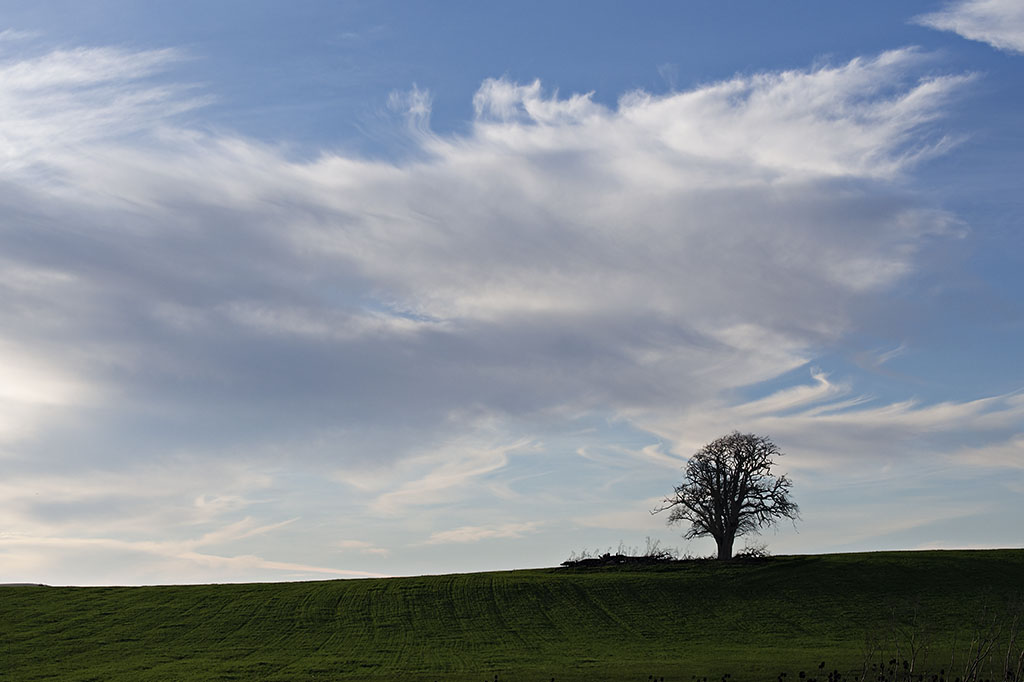
And closer
Ranch homestead and Mt St. Helena
I thought this was Venus, but her name may be Victoria.
Saturday morning, our high location let me watch the sun rise through the mist.
There was still a lot of fog/mist down at the main house at breakfast.
And the sun deck – wasn’t.
A moss covered fallen tree.
Trees on the slope across the Bohemian Highway.
Sunday morning, more mist in the valley called for B&W.
And another view.
Heading home Sunday afternoon, we came upon a hawk on a fence post. Not uncommon, but this one stayed while I took a few shots.
The M.Zuiko 75-300 lens is quite good, really, but I’m still learning proper technique. The images came out well at 100%
I’d never seen this behavior before. The hawk glided to the ground and spent a some time looking around, then ran up the slope and launched into the air near the top. I’d never thought about it – it was quite fleet of foot.
Not great image quality. The shutter speed was enough for the IS at 600 mm eq., but not enough for the magnified movement of the bird. Focus Magic motion blur correction helped some.
Rural recycling.
Never pass up a nice ‘shroom pic.
“Use cows to add life and interest to simple landscape compositions.”
The Bones of the Earth exposed.
Carol sees a turtle head here. Whatever it is, it looks like it’s going to lose its nose.
Erosion.
The Contemplator and his old friend, who has lost his nose and misplaced his dentures.
Rear view.
A magical looking little box canyon, used only by cattle.
The tip of Point Reyes and the mouth of Tomales Bay.
Lots of early rain means the hills turn from Summer ‘golden’ brown to Winter greens. Although the process is less far along further inland, in the rolling hills of West Marin, the range and intensity of the greens is amazing.
Stripes!
Another beautiful corner – and context for ‘Stripes’.
I hope you enjoyed the trip!
Moose atop moosemystic period net



